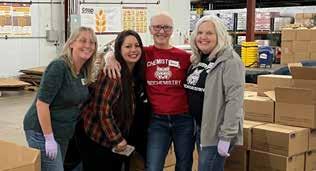The CATALYST
CHEMISTRY AND BIOCHEMISTRY ALUMNI MAGAZINE FALL 2023
Stephen J. Lu, UArizona
Biochemistry BS, Class of 2005, is on a mission to improve leadership in forensics.
Page 10

Chemistry & The Commons now open.
Page 4


Stephen J. Lu, UArizona
Biochemistry BS, Class of 2005, is on a mission to improve leadership in forensics.
Page 10

Chemistry & The Commons now open.
Page 4

Iwould like to begin by thanking you all for the continued support of CBC and our mission! This year was exciting for CBC, as we saw continued accomplishments and successes of our students, alumni, faculty, staff and friends and large changes to CBC infrastructure. In this Catalyst, we share a small sample of these achievements and their impacts.
This year we moved into the newly renovated Old Chemistry Building, the home for generations of CBC students, after a very thoughtful renovation that maintains the history of the building while embracing the future of our research, student support and teaching mission. The state-of-the-art renovation will enable training of the next generation of students with powerful new research and educational facilities.
Our alumni are succeeding at the highest levels, as highlighted in the Alumni Updates in the online edition. Our cover story highlights CBC Alumnus Stephen Lu and his efforts to improve leadership in forensic science and beyond. Through these efforts he is addressing the critical problem of retaining highly trained scientists in a field with high historical turnover.
Our current students continue to excel and receive numerous departmental, college, university, and external awards. We celebrated the 10th Anniversary of our Annual Graduate Research Symposium, which showcases the excellent work being done by graduate students at all career stages. We also awarded the inaugural Matthew and Jan Parker Krause Endowed Scholarship. As you can see in our Awards List, our students receive many scholarships made possible by the generosity of our alumni and friends. The impact of this support on those students and the department is impossible to overstate.
The faculty and staff in CBC continue to provide outstanding research creativity and mentorship for a diverse cadre of students and trainees. CBC faculty translate research discoveries into licensing and start-up endeavors that significantly impact society. This year, we awarded the Inaugural Lee and Vera Jones Chair in Chemistry and Biochemistry to Prof. Jon Njardarson in recognition of his significant contributions in research, teaching, mentoring, outreach, and service. This award was made possible by the generous support of Drs. Lee and Vera Jones. Prof. Michael Marty was also named the Donna B. Cosulich Faculty Fellow in recognition of his accomplishments. Numerous other faculty and staff received prestigious national, international and University awards. Our outstanding staff continue to elevate the mission of the department, and achieve broad recognition for their contributions beyond the walls of CBC.
We will soon welcome Dr. Thomas Purcell to our faculty as an Assistant Professor. Several faculty also received key promotions, including Drs. Gianetti, Hidalgo, Perera, and Van Dorn.
The CBC community saw longtime faculty member Prof. Stephen Kukolich retire, along with Dr. Colleen Kelley and Amanda Wentzel from our instructional laboratories, and we were saddened by the passing of former colleague Prof. Phil Keller.
We are particularly excited for the coming year as we see many great opportunities ahead! Thank you for your continuing support of CBC!

Craig Aspinwall Department Head
Contributors:




By Lisa Arrotta and Roy Sanchez
In April of 2023, CBC celebrated the opening of the renovated Chemistry Building and a newly constructed building named The Commons.
Hundreds of students, faculty, staff, alumni, and friends took the opportunity to tour the new facilities as soon as construction was complete.

Ribbon-cutting ceremony, including Dr. Craig Aspinwall, Eric Bell, Senior Vice Provost Gail Burd, Provost Liesl Folks, President Robert Robbins
“This exciting space provides key enhancements to all areas of our mission,” Department Head Craig Aspinwall said during the opening ceremony, “and honors the past while boldly shaping the future.”
The opening ceremony also featured presentations from University of Arizona President Robert C. Robbins, Provost and Senior Vice President for Academic Affairs Liesl Folks, and the driving force behind the project, Senior Vice Provost for Academic Affairs, Teaching and Learning Gail Burd.
The 78,600-square-foot combined buildings are home to the Department of Chemistry and Biochemistry Research Support Services (RSS) including the NMR Facility, Machine Shop, and Electronics Shop.
Originally constructed in 1936, Old Chem has been a central feature at the University of Arizona for over 86 years.

“In a way,” Provost Folks said, “this project is meant to respect the past and embrace the future.”
Groundbreaking for the construction began in 2021 and incorporated a design that pays homage to the past by keeping the historic Old Chem exterior. The interior is now home to stateof-the-art learning spaces that facilitate hands-on learning and collaboration.
On the third floor, near the research offices of Drs. Bredas and Schwartz, a new visualization cave, or “viz cave” for short, offers an immersive virtual reality environment leading to a truly modern way of “seeing” molecules.
The new building now complies with modern energy codes, and accessibility was integrated into the design’s core. Visitors entering from the campus mall are met with an accessible entry atrium on the ground level, and new elevators can be found all around the building. During class, students can participate from almost anywhere in the room.
If you haven’t had an opportunity to visit, please contact the department at CBC-FrontOffice@list.arizona.edu for more information.

By Dr. Amy L. Graham (PhD, Chemistry 2010)
CBC faculty and students agree that preceptors are a critical component for the successful implementation of our large enrollment courses. Preceptors earn upper-division course credit to assist during classes and offer opportunities to support student learning outside of our courses. They enrich our classes with enthusiasm for the content and provide accessibility for the students who aspire to succeed.
Here is what some of our CBC Faculty had to say about their experiences with preceptors:
Dr. Laura Van Dorn (PhD Chemistry, 2004) highlighted, “They are invaluable because they have recently completed the course and know, firsthand, the challenges and how to overcome them. They are wonderful at encouraging the students to keep at it, while providing helpful tips for difficult concepts as well as reinforcing positive study habits.”
Dr. Lisa Dollinger finds that, “having a team of preceptors who are enthusiastic and excited about the material makes it a lot easier to convince the current students that it is a fun class if you work hard to learn it.”
Dr. Tori Hidalgo (PhD Chemistry, 2009) shared, “I learn more about the struggles many of my students are facing, which allows me to communicate to the class in a way that I hope makes me more approachable and creates an equitable experience for my students.”
Preceptors appreciate that they have grown in confidence and content knowledge. “Being a preceptor has significantly helped me with my major. Much of
science revolves around clear communication skills, and there is no other place that offers a better opportunity to practice communicating complex topics to others,” says Ashley Wellik. Ellie Fenderson added, “Precepting has helped build the chemistry foundation needed in my other coursework like organic chemistry and biochemistry.” Filiberto Pena added, “Not only does being a preceptor give me the satisfaction of watching others succeed, but it also helps me excel in my own knowledge of chemistry and allows for a more fluid way to think about chemistry.”
Preceptors value their contributions to helping students thrive. “I find it highly rewarding to help students make the transition from high school to college level curriculum in a topic that can be complicated,” says Ashley Wellik. Aunita Hakimi added, “I also enjoy understanding what’s going on in students’ minds and witnessing those ‘aha’ moments when they finally grasp a problem.” Students feel welcomed into their courses by the presence of preceptors because they are approachable and peers of the students. “Preceptors have helped me succeed in courses that I would not be able to do on my own as it is much easier asking them for help as opposed to a professor at times,” offered Hannah Nguyen when asked about how preceptors impacted her experiences as a student.

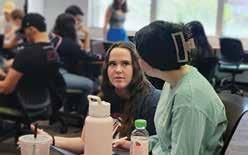
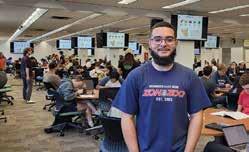


By Dr. Jon Njardarsan
In the fall of 2022, UArizona Professor Jon T. Njardarson had the great pleasure of instructing organic chemistry to undergraduate student Evamaria Tanori Contreras, who is blind.
Evamaria is the first blind student to take organic chemistry in the Department of Chemistry and Biochemistry (CBC), which presented an amazing opportunity for Professor Njardarson to embark on a new and exciting educational journey focused on creating custom, fun and effective teaching approaches that would support Evamaria in learning about the wonders of organic chemistry.
After reaching out to the broader community, it became clear to Professor Njardarson that UArizona and other institutions were lacking established practices to best serve students like Evamaria. Undaunted by this challenge, Professor Njardarson quickly decided that the only way that this could be done effectively would be to take it upon himself to teach Evamaria in a one-on-one setting.
Teaching in a one-on-one setting allowed Professor Njardarson to optimize and modify his teaching approaches in real time while learning from Evamaria about what best works for her. Professor Njardarson customized organic chemistry models to uniquely fit Evamaria’s needs and enable her to master all aspects of the course, which she did with flying colors.

While preparing to instruct Evamaria, Professor Njardarson benefited from immediate support from CBC (Professor Craig Aspinwall and Dr. Deirdre Belle-Oudry) and the College of Science (Dean Carmala Garzione), who provided funds to purchase tactile drawing boards. This allowed Professor Njardarson and Evamaria to draw organic chemical structures and communicate effectively.
With help from the UA Disability Resource Center (DRC), Professor Njardarson’s textbook chapters, educational support materials, and exams were all promptly printed in braille by an amazing team at the DRC (Barbara Lopez, Dawn Hunziker, and Annissa Stout). Professor Njardarson was further supported by awesome preceptors (Cassidy L. Zimmerman, Palmer H. Grabner, and Jillian Sweetland).
After this endeavor, which he considered to be the most enjoyable and rewarding teaching experience of his career, Professor Njardarson felt compelled to detail his teaching experiences and recommendations in a one-stop resource for instructors teaching organic chemistry to visually impaired students. His work was published this fall in the Journal of Chemical Education (J. Chem. Ed. 2023, 100, 3967).
After hearing about Evamaria’s organic chemistry success, the Arizona Daily Star reached out to write a story about the experience. Their story, published in March of 2023, features insights from Evamaria, Dr. Njardarson, the DRC, and Evamaria’s roommate and Organic-Chemistry Preceptor Cassidy Zimmerman.


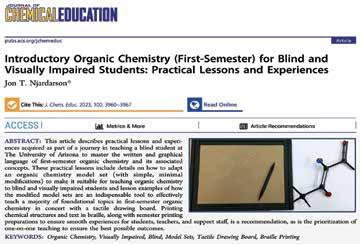
Hi! My name is Ika Lin. I am a rising junior studying Biochemistry with minors in Spanish and Pharmaceutical Sciences. As part of the MARC summer program, I worked in Dr. John Jewett’s lab. My project focused on exploring caged diazonium ions as logic-gated (pro)-fluorogenic biochemical detection tools, incorporating a variety of organic synthesis techniques. I also had the opportunity to attend a weekly speaker series featuring faculty conducting biomedical research and workshops related to graduate school prep/strategic communications. In early August, I gave a poster presentation regarding my work at the UROC Colloquium. I am extremely grateful for Dr. Jewett, Dr. Katrina Miranda, and Keren-ha Chávez for their support. This semester, I am very excited to be working as a CBC Peer Mentor and Ambassador. After graduation, I intend to pursue graduate studies in public health and/or chemistry.

My name is Gal Melman and I have been a part of the Njardarson lab for over a year. Engaging in research has been an immensely rewarding journey for me. It has been, and continues to be, such a privilege to explore and contribute to the world of synthetic organic chemistry. What has truly left a profound impact on my research experience is the collaborative and engaging environment of the lab. Working alongside passionate and intelligent mentors, as well as the enthusiasm and creative mind of Dr. Njardarson, has enhanced my understanding of organic chemistry. The lab is a creative environment in which I can contribute to the quest for discovery and innovation in this field. After graduation, I plan on taking a gap year and working for a biotech company, after which I will further my studies in chemistry in graduate school.
This summer, I had the pleasure of working under Dr. Zhongguo Xiong as part of the DSA-UBRP program.
My project in the lab focused on producing effector proteins in E. coli for the early, non-local detection of the Huanglongbing (HLB) complex in citrus plants using monoclonal antibodies. The project hit several road bumps along the way, but I had guidance, time, and mentorship enabling me to troubleshoot problems. UBRP gave me the opportunity to commit to research unlike before, while providing guidance in professional development and career paths in the biological sciences. I was able to receive advice from several graduate students and professors working with UBRP, and I have affirmed my career path with their advice.
The summer flew by as I worked in the lab and explored Tucson’s outdoors in my free time. Despite the less-than-favorable temperatures, I had a fantastic time hiking and cycling with friends.
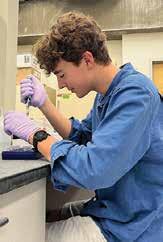
This past summer, I continued my work in Dr. Jon Njardarson’s organic chemistry research group as a part of the Undergraduate Biology Research Program (UBRP). This allowed me to get paid for full-time work in my lab, and I am glad that I was able to devote a whole summer to research as an undergraduate.

I enjoyed getting to know everyone better too. I got to learn more chemistry techniques and practical knowledge that I will use throughout my career.
One project I worked on was the total synthesis of the Parkinson’s medication, Apomorphine. Total synthesis refers to synthesizing a larger compound (like Apomorphine) from smaller chemical building blocks. This allows scientists to selectively modify the structure of a medication along the way while making it and to potentially reduce some of its undesirable side effects.


By Lilia Koelemay, Katherine Gold, and Dr. Lucy Ziurys
Phosphorus, the fifth most abundant element by mass in living organisms, is a critical component in replication, energy generation and cellular structure.
It is one of the NCHOPS elements—those considered necessary for life. Phosphorus also is thought to be crucial in the formation of rocky planets, like Earth, as part of the core material mixed with iron and nickel. The discovery of over 5000 exoplanets has led to questions of habitability, for which phosphorus may provide important clues.
Despite its significance, observing phosphorus within the interstellar medium is challenging. Our current studies of phosphorus span only about 15% of the Milky Way galaxy, and 10% of all observed stars. We have far better knowledge of other elements like carbon and oxygen. Our understanding about the distribution and abundance of phosphorus is limited because the atomic transitions of this element are difficult to observe due to coincidental atmospheric obscuration. Sim-

ple phosphorus-bearing molecules offer another avenue to explore this element, but these species are typically rare. Thus far only seven P-bearing molecules are known in interstellar space: PN, PO, CCP, HCP, CP, PH3 and SiP—several of which were initially detected in the Ziurys research group. Only PO and PN have been identified in molecular clouds, the sites of solar system formation.
Recently, simple organic molecules such as CH3OH were identified in the far Outer Galaxy, in dense clouds located beyond 20 kiloparsecs or 65,000 light years (4 × 1014 miles). Consequently, the Ziurys group sought to investigate phosphorus in these so-called “Galactic Edge Clouds.” Using the Arizona Radio Observatory’s 12-m telescope, graduate students Lilia Koelemay and Katherine Gold searched for the phosphorus-bearing molecules PO and PN towards one Edge Cloud, WB89-621. PN was tentatively identified by a transition at 2 mm in WB89-621. Subsequent observations at 3 mm were conducted at the IRAM 30-m telescope in Spain. These observations corroborated the presence of PN with a 3 mm transition and resulted in the detection of the PO molecule as well, identified by its quartet spectral pattern.
The abundances of PO and PN were determined for WB89621 and found to be surprisingly comparable to that in star-forming regions near our solar system. Therefore, phosphorus-containing molecules are quite prevalent at the Galaxy’s edge, suggesting distant planets may be habitable. Moreover, the identifications suggest a new source of elemental phosphorus, thought to be exclusively formed in supernovae. These explosive stars are too massive to occur at such large Galactic distances, where matter is sparse. Therefore, an alternative source of phosphorus may exist, likely in the lower mass stars that populate the Outer Galaxy.
By Dr. Elisa Tomat
Cancer cells present a characteristic addiction to iron, which supports their faster proliferation rates and overall metabolism.
Professor Elisa Tomat and her research team work on the development of new compounds to target this vulnerability of malignant cells and combat cancer growth. In a recent article published in the Journal of the American Chemical Society (pubs.acs.org/doi/full/10.1021/jacs.3c02033), the group reported a new class of compounds (prochelators) that are designed to activate intracellularly and capture iron ions, thus interfering with the cell cycle progression and proliferation of cancer cells. The approach was inspired by the bioreduction of tetrazolium cations where common reagents typically used to assess cell
viability were synthetically modified by the Tomat group to produce iron-binding, antiproliferative compounds.
Graduate student Yu-Shien Sung and former postdoctoral associate Zoufeng Xu collaborated on this project, supported by the National Institutes of Health. The work was conducted entirely in the Tomat laboratories and the core facilities of the University of Arizona Department of Chemistry and Biochemistry and the Cancer Center, where Dr. Tomat is a Chemistry Professor and Clinical and Translational Oncology research member.

By Lori Boyd
The 10th Annual CBC Research Symposium was held on August 10, 2023. The line-up included talks for the Howard P. Klein Early Career Excellence in Research awards, the David F. O’Brien Fellowship, and the Carl S. Marvel Scholarships. This symposium serves a dual purpose of celebrating the contributions of graduate students to the CBC research enterprise and welcoming new 1st-year graduate students. It provides an excellent platform for these incoming students to immerse themselves in the vibrant research culture across various disciplines and programs within CBC. This event is crucial in fostering a sense of community and encouraging collaboration among students and faculty.


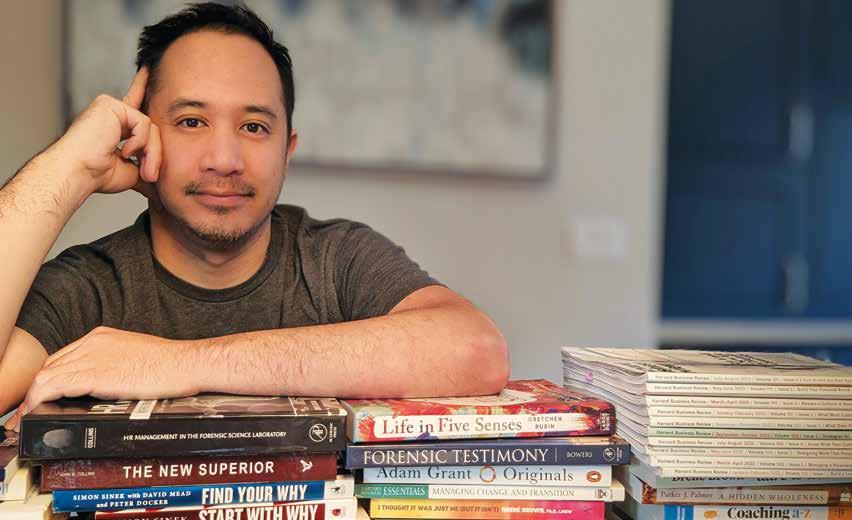
By Stephen Lu and Olivia Mendoza
Stephen Lu is currently the Chief Executive Officer of the Forensic Leaders Training Center®, a leadership training and coaching company specific for forensic practitioners.
He has 17 years of forensic experience, including Forensic Biology, Crime Scene Investigation and Reconstruction, and Firearms Analysis. He has worked for the California Department of Justice in the Bay Area, the Arizona Department of Public Safety in Phoenix and Tucson, and the San Diego County Sheriff ’s Department. He has testified as a qualified expert witness in courts in Arizona and California and in front of the U.S. District Court for the Central District of California. As an active member since 2007, he has served as the Regional Director South and Lead Webmaster for the California Association of Criminalists. In these roles, he increased public visibility by updating and transforming the website, and he guided the leadership through the transition to online training during the COVID-19 pandemic. Currently, Stephen serves as a member of the San Diego County Sheriff ’s LGBTQ+ Advisory Council and is a 2023 FBI San Diego Citizens’ Academy graduate. In September 2021, Stephen became the Executive Director of A Lasting Strength, a non-profit organization dedicated to supporting and improving the lives of people with Amyotrophic Lateral Sclerosis (ALS). Stephen also serves as a community
member of the Patient and Family Advisory Council at UC San Diego Health.
Throughout his career in forensics, Stephen observed and experienced numerous examples of leadership failure. He has also heard narratives of the effects that poor leadership has on worker morale and its significant contribution to low retention rates. Along with earning his EMBA, Stephen conducted primary research and business writing. His team named and clarified the problem that they worked to address:
Forensic scientists, technicians, and related professionals generally work under the purview of a law enforcement or government agency to aid criminal investigations by collecting and examining physical evidence. There are many different specialties of forensic science, including digital forensics, DNA analysis, latent fingerprints, firearms and tool marks, toxicology, trace, controlled substances, forensic document examination, crime scene investigation, and more. Because forensic professionals provide written reports and expert testimony in jury trials, they are closely intertwined with the criminal justice system.
• Attrition at forensic laboratories is a prevalent problem: 60% of respondents to a recent survey perceive a substantial turnover rate of at least 50% within their laboratories.

• Workplace culture emerged as a crucial factor, consistently ranked among the top three contributors to employee turnover in their laboratories.
• The cost of replacing highly specialized employees such as forensic scientists can be up to 400% of their annual salary, and multiple employee turnover can cost a forensic laboratory millions of dollars per year.
• These costs can significantly impact public safety and criminal justice for the communities’ laboratory services.
• Currently, forensic practitioners who want to develop their leadership skills have limited options: free solutions aren’t comprehensive or effective, and quality solutions are prohibitively expensive.
These compelling findings underscore the importance of effective leadership and fostering a positive workplace culture to address the pressing issue of high employee turnover rates in forensic laboratories. In addition, there is a clear need for more widely accessible leadership development solutions for forensic professionals; current solutions are lacking in efficacy and affordability.
Stephen holds an Executive MBA with Honors from Quantic School of Business and Technology and a Bachelor of Science with Honors, magna cum laude, in Biochemistry and Molec-
“ ”My time at the University of Arizona was immeasurably enriched by my experiences with the Department of Biochemistry.
Starting in high school, I interned with the late Dr. Michael Wells and was mentored by James Pennington and April Stonehouse. I continued to work and gain experience in the lab through the Undergraduate Biology Research Program (UBRP), headed by Dr. Carol Bender. As a result of my experiences, I was offered a rare internship at the National Institutes of Health, performing research in disease biology.

I recall my time at the University of Arizona with pleasure and gratitude. It was a launching pad for a career in public service in forensic and death investigation, and it guided my life on a trajectory that I never expected was possible.
ular Biophysics and Molecular and Cellular Biology from the University of Arizona. Stephen is also a Society for Human Resource Management Certified Professional (SHRM-CP).
In his free time, Stephen enjoys electronic music composition and production and playing with Aries, a stubborn Siberian Husky. He has authored memoirs about his time as a death investigator, entitled CSI to CEO, and plans to publish them in 2024.
Stephen lives in San Diego, CA.
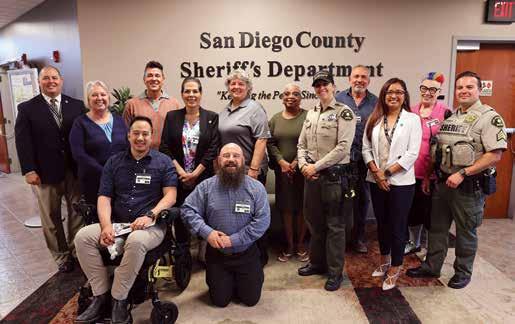


Graduate Students
Rachel Allen
Ananya Chakraborti
Beverly Feng
Andrea Hamilton
Megan Laham
Hiruni S. Jayasekera
Undergraduate Students
Sean Chen
Momoko T. Cronin
Michael Foster
October Owen
Shinhye (Chloe) Park
Vara Vungutur
Michelle Wei
Michael Cusanovich Scholar
Chemistry and Biochemistry & College of Science Outstanding Senior
Vanessa Addison - Biochemistry
Biochemistry Outstanding Senior
Nick Mortimore
Chemistry Outstanding Senior Anthony DiGirolamo
Biochemistry Excellence in Research
Hillary Schiff
Chemistry Excellence in Research
Jack Nichols
Chemistry and Biochemistry
Outstanding Senior Fall 2022
Sophia von Hippel - Chemistry
Outstanding Biochemistry Junior Gal Melman
Outstanding Biochemistry
Sophomore
Jackson Taylor
Outstanding Chemistry Freshman
Momoko T. Cronin
CBC Outstanding Senior Thesis
1st Place: Vanessa Addison
2nd Place: Terese Kulangara
3rd Place: Allison Steedman
ACS Hach Scholars
Benjamin Augustine
Meghan Davis
Aiden Connor
Undergraduate Award in Analytical Chemistry
Bonnie Galiga
Undergraduate Award in Physical Chemistry
Jack Nichols
Charles Hoyt Scholars
Caroline Coppinger
Heather Kwapiszeski
Excellence Award in Biochemistry
Sean Chen
Caroline Coppinger
Heather Kwapiszeski
Michael A. Wells Research in Biological Sciences Scholars
Vanessa Addison
Hillary Schiff
AZ Society for Coatings Technology Scholars
Satya Dulam
Megan J. Hahn
Dr. Thomas M. and Candace C. Grogan Scholars
Meghan Davis
Alexis Gomez
Audrey Winkle
Patrick M. Hefferan Memorial Scholars
October Owen
Christian Viramontes
Royal Society of Chemistry
Certificate of Excellence Award
Momoko T. Cronin
Sean Chen
CBC Outstanding Student Peer Mentors
Wesley Chiu
Eric Primack
Ronald Gonzalez Wildcat Spirit Award
Vanessa Addison
Alejandra Carreon
Sean Chen
Nick Mortimore
Kristen Roehling
Outstanding Graduate Students
Outstanding Scholarship
Anjalee Wijetunge
Outstanding Service
Andrea Hamilton
Outstanding Teaching & College of Science
Ryan Williams
Carl S. Marvel Scholars
Md Mubarak Hossain
Julia A. Townsend
David O’Brien Graduate Fellow
Tasmia Ahmed
Victor P. Thalacker Chemistry Graduate Fellow
Jeffrey R. Groch
Kathryn K. and James D. Steele Scholar
Andrea Hamilton
Herbert E. Carter Awardee
Yan Liang
Dr. Wayne Cody Scholar in Medicinal Biological Chemistry
Alessandra Fistrovich
George Gregson Scholar
Aidan McMahon
Howard P. Klein Early Career Excellence in Graduate Research
Rajat Ravi
ARCS Foundation Scholarship for 2023-24
Alessandra Fistrovich
2023 Electron Microscopy Science Award
Rodolpho Souza Amado de Carvalho
UA Dean of Students Merrill P. Freeman Medal Senior Award
Vanessa Addison
UA Dean of Students Robert Logan
Nugent Senior Award
Hillary Schiff
CBC Undergraduate Poster Fair
Senior Thesis
1st: Maddie Milner
2nd: Julie Fan
Honorable Mentions:
Vanessa Addison
Ellie Browne
Carson Freeling
Terese Kulangara
Krista Potter
Hillary Schiff
Biological Sciences Advanced 1st: Clare Hotze
2nd: Aunita Hakimi
Honorable Mention:
Veronica Hode
Biological Sciences Emerging 1st: Emma Slenkovich
2nd: Katelyn Boone
Honorable Mention:
Madison Grams
Physical Sciences Advanced 1st: Briana Pomales
2nd: Anthony DiGirolamo
Honorable Mention: Olivia Bertuca
Physical Sciences Emerging 1st: Benjamin Koppe
2nd: Ronald Palmenberg
Honorable Mentions: Janelle Amegatse
Luke Fasse
Vanessa Addison, a 2023 graduate of the University of Arizona with a Bachelor of Science in Biochemistry and minors in Chemistry and Spanish, embodies a lifelong commitment to science, medicine, and community service. Throughout her time at the University of Arizona, Vanessa’s passion for medical research was undeniable. Immersed in Dr. Ross Buchan’s lab, she delved deep into understanding the intricate mechanisms of Amyotrophic Lateral Sclerosis (ALS). Her contributions significantly advanced our comprehension of ALS, meriting her the College of Science Outstanding Senior Award and the Outstanding Thesis Award. In addition to her academic and research pursuits, Vanessa demonstrated an unwavering commitment to her community. As an Emergency Medical Technician in Tucson, she played an essential role in the successful distribution of COVID-19 vaccines. Her dedication to public health and healthcare equity shone brightly throughout her ongoing volunteer work with both campus and community organizations. Her experience as a peer tutor and CBC Ambassador fueled her passion for mentorship and education.
By Vanessa Addison and Olivia Mendoza
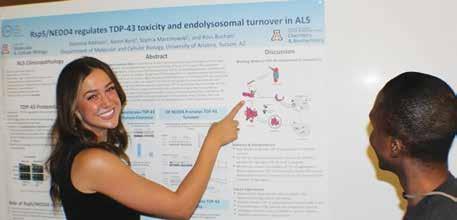
Currently pursuing her M.D. at the University of Miami Miller School of Medicine, Vanessa’s journey continues. She currently serves as a Care Coordinator with the Miami Med Reentry program, where she connects previously incarcerated individuals with vital health services. Vanessa’s future aspirations include specializing in ophthalmology, OB/GYN, or internal med-peds. She envisions a career in academic medicine, where she can contribute to medical education and research.

Vanessa’s achievements at the University of Arizona, crowned as Homecoming Queen and a recipient of the University’s Merrill Freeman Medal, illuminate her unwavering dedication to science, education, and community service. Her journey aligns with the University of Arizona’s commitment to fostering excellence. Vanessa is a lifelong Wildcat, proud to carry the university’s spirit and values forward.
Hillary Schiff, a talented scholar hailing from Colorado Springs, is also celebrated for her exceptional achievements. Majoring in Biochemistry and French at the University of Arizona, Hillary devoted her academic journey to groundbreaking research in allergic asthma drug development, leading to a first-author paper and serving as the basis for her honors thesis. Hillary was a recipient of the University’s Robert Logan Nugent Award. She was also selected for the Chemistry and Biochemistry Excellence in Research Award. Beyond her studies, Hillary engaged in community service and volunteering at Banner University Medical Center and embraced mentorship opportunities on campus.


Hillary’s remarkable journey continues at the University of Chicago Pritzker School of Medicine, where she’ll pursue an M.D. as part of the class of 2027.
Notably, she and Vanessa share roots, both originating from Colorado Springs and attending the University of Arizona to ultimately pursue careers in medicine. Congratulations to Hillary and Vanessa on their inspiring journeys.
Dr. Tara Archuleta was appointed to the position of Assistant Professor of Practice.
Promoted to Associate Professor with Tenure;
2023 Galileo Circle Curie Award
Dr. Thomas Gianetti was selected for the 2023 Galileo Circle Curie Award.
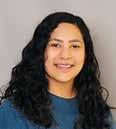

The Galileo Circle Curie Award recognizes a “rising-star” of the department and is given to junior faculty whose innovative work not only advances science but also adds to the diversity within the scientific community.
2023 Galileo Circle Copernicus Award;
The Gerald J. Swanson Prize for Teaching Excellence; UArizona Distinguished Career Teaching Award

Dr. Amy Graham was selected for the 2023 Galileo Circle Copernicus Award, the Gerald J. Swanson Prize for Teaching Excellence, and the Distinguished Career Teaching Award.
The Galileo Circle Copernicus Award recognizes extraordinary accomplishments that are deserving of recognition and significantly advance the mission of the department and knowledge base of the discipline.
The Gerald J. Swanson Prize for Teaching Excellence is designed to recognize excellence in undergraduate teaching at the University of Arizona. The Provost Office noted that Dr. Graham impacts thousands of science and engineering students through the Chemical Thinking curriculum for General Chemistry.
The Distinguished Career Teaching Award is presented by the College of Science in recognition of a long career as an outstanding classroom teacher and mentor of students at different levels and in diverse settings.
Dr. M. Leandro Heien was selected for the Graduate Teaching and Mentoring Award.
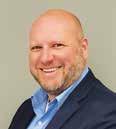
This is the highest award bestowed by the Graduate College for excellence in the teaching and mentoring of graduate students. Dr. Heien will be recognized at the annual Presidential Ceremony this spring for his long-standing commitment to excellence in graduate education, including mentoring, professional development, and a dedication to diversity and inclusion.
Promoted to Associate Professor of Practice; Provost Award for Innovation in Teaching
Dr. Tori Hidalgo was selected for the Provost Award for Innovation in Teaching.
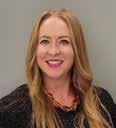
This award was established to acknowledge outstanding faculty whose teaching portfolios and instructional effectiveness merit special recognition. Dr. Hidalgo was selected and recommended by the university committee because of her outstanding commitment to students and excellence in teaching.
Dr. Vanessa Huxter was selected for the NSF Career Award from the National Science Foundation.

The $650,000 award will provide five years of funding to study photoinduced single-electron transfer in photoredox catalytic systems using optical spectroscopy across a wide range of time and energy scales.
This research will identify the driving forces and intermediate states for photoredox catalytic reactions, which could open pathways to design new, efficient catalysts. The award will also support the development and deployment of 3D-printed spectrometers that will bring hands-on learning to students from historically underrepresented groups.
Arthur F. Findeis Award for Achievements by a Young Analytical Scientist; Distinguished Scholar Award; UArizona Pittcon Achievement Award; Donna B. Cosulich Faculty Fellow

Dr. Michael Marty was selected for the Arthur F. Findeis Award for Achievements by a Young Analytical Scientist, the Distinguished Scholar Award, and the Pittcon Achievement Award. CBC is also happy to announce that Dr. Michael Marty was named the Donna B. Cosulich Faculty Fellow in Chemistry and Biochemistry.
The Arthur F. Findeis Award, now in its 27th year, recognizes and encourages outstanding contributions to the fields of analytical chemistry by a young analytical scientist.
The Distinguished Scholar Award is granted to outstanding faculty who are making transformative contributions to their disciplines and to our purpose, mission, and values, and who are achieving national/international recognition. The award places emphasis on faculty who are recognized for their ground-breaking innovations and on their broader contributions to research, teaching, and community engagement, including their efforts to meet the priorities set out in the University’s Strategic Plan.
The Pittcon Achievement Award aims to recognize individuals for outstanding achievements in the fields of analytical chemistry and/or applied spectroscopy within 10 years after the completion of their PhD work.
The Cosulich Fellow is awarded to an early to mid-career faculty member with a high national and international stature in the discipline and considers contributions in all areas of scholarship, teaching, mentoring, service, and outreach.
Arizona Champion, Office of the Provost
Dr. Oliver Monti was selected as an Arizona Champion by the Office of the Provost.

Arizona Champions are incredible faculty and staff members at the University of Arizona who go above and beyond every day. Dr. Monti earned this award for his work with the Veterans Education and Transition Services (VETS), a story that was covered in the 2022 edition of the Catalyst
Lee and Vera Jones Chair
CBC is happy to announce that Dr. Jon Njardarson has been appointed as the Inaugural Lee and Vera Jones Chair in Chemistry and Biochemistry. The Jones Chair is awarded to a faculty member with a high national and international stature in the discipline and considers contributions in all areas of scholarship, teaching, mentoring, leadership, service, and outreach.
ACS Francis P. Garvan-John M. Olin Medal
Regents Professor Jeanne Pemberton was selected for the Francis P. Garvan-John M. Olin Medal.
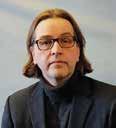
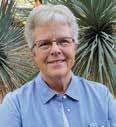
The purpose of the award is to recognize distinguished service to chemistry by women chemists. Dr. Pemberton is adding this prestigious medal to a long list of awards and honors.
Perera
Promoted to Assistant Professor of Practice
Dr. Suchi Perera accepted the position of Assistant Professor of Practice.
Laura Van Dorn
Promoted to Associate Professor of Practice; Innovation in Teaching Award
Dr. Van Dorn was selected for the Innovation in Teaching Award.
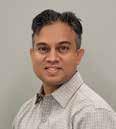

The Innovation in Teaching Award is presented by the College of Science in recognition of outstanding educational innovation developed and applied to course delivery whether in the classroom or in a virtual setting.
By Regents Professor Emeritus John Enemark
Dr. Lee B. and Dr. Vera K. Jones received their PhD degrees in organic chemistry from MIT in 1964.
Following a short post-doctoral stint at Cal Tech, Lee joined the University of Arizona as an assistant professor of chemistry in Fall 1964. With Vera’s research acumen and assistance, he established a vigorous research program in the mechanisms of organic photoreactions, which led to several joint publications before Vera transitioned out of the lab.
Lee rose through the faculty ranks to full professor, and in 1973 was appointed head of the Chemistry Department. In 1977 he became Dean of the Graduate College and his responsibilities soon expanded to include Vice President for Research and Provost.
In 1985, he moved to the University of Nebraska to serve as the Executive Vice President and Provost. When he retired from that position in 2002, he and Vera returned to Tucson, where they actively participated in the Departmental Advisory Board.
Their continuing support for the Department of Chemistry and Biochemistry and the College of Science culminated in the establishment of the Lee and Vera Jones Chair of Chemistry and Biochemistry. Sadly, Vera passed away in 2022 before the inaugural recipient of their endowed chair was announced.
Thomas Purcell began his scientific career at New York University where he received his BS in Chemistry, before getting his PhD at Northwestern University under Prof. Tamar Seideman. During his PhD he developed classical and semi-classical methods to describe the coupling between quantum emitters and plasmonic nanoparticles using the finite-difference time-domain and Maxwell Liouville algorithms.

After his PhD he joined the Theory Department (now the NOMAD Laboratory) of the Fritz-Haber-Insitut der Max-PlackGesellschaft (FHI) as an Alexander von Humboldt Postdoctoral Fellow, and later became a Group Leader in the same department.
At the FHI, Thomas focuses on creating high-throughput computational workflows and machine-learning models for understanding thermal transport properties of materials. As a part of these efforts, he develops and maintains the FHI-vibes and SISSO++ software packages, for modeling the vibrational properties of a material and finding analytical expressions for a material’s properties using the sure-independence screening and sparsifying operator, respectively. Recently, he has been combining those efforts to create artificial intelligence-guided workflows to find new thermal insulators.

Michael Burrell Systems Administrator III

Josie Martinez Grant and Contract Admin

Hibram Sanchez Garcia
Academic Advisor

Jennifer Thomas Seminar Coordinator

Nancy Louks Business Manager, Sr.

Virginia Olivas Accounting Assistant

Dr. Muhammed Shafeek O.H. Researcher/Scientist III
Dreisbach Facilities Manager
Congratulations to CBC Facilities Manager Scott Dreisbach for earning the College of Science Excellence Award!
“Scott joined UA in 1999 and since then has proven to be an invaluable member of the department who routinely goes beyond the normal job description to get things done. Though Scott is fully engaged in his current job, he took on the added responsibility of coordinating our move out of the Chemistry building so that the renovation project could begin. Over the years, I have talked to numerous individuals, from groups ranging from Project Design and Construction to Facilities Management to Research Laboratory Safety Services and many in between. They all know Scott as a reliable partner who will go above and beyond to ensure the mission of the institution is being served in the most straightforward, practical manner possible.”
—Nominated by Dr. Craig Aspinwall with favorable support by Dr. Brooke Massani

Congratulations to the 2023 awardees of the Dr. Harold McNair Staff Award, Justan Klaus and Hollis Whitewater! Both Justan and Hollis were recognized for their tireless efforts and dedication to the mission of CBC.
Read more about New Staff in the online magazine cbc.arizona.edu/ alumni/catalyst
We at CBC are so grateful for their amazing contributions and commitment to making the department better for students, faculty, and staff.


Dr. Aspinwall congratulating Justan


Colleen Kelley
CAREER HIGHLIGHTS
A fantastic array of collaborators made it possible for me to transition from an organometallic chemist to a supramolecular chemist, to a medicinal chemist, to exploring environmental toxicology, and then landing on a deep dive into research in the field of chemical education. My career feels full and fulfilling and I want to thank each of my mentors, collaborators, and students globally for these career highlights. Here are a few:
Chateaubriand Fellowship with Professor Jean-Marie Lehn, where not only did I learn supramolecular chemistry, but I also learned that it’s possible to have a Nobel Prize in chemistry and lead and mentor a research group with kindness, humility, curiosity, and grace.
U.S. Army Captain and Medicinal Chemist
• U.S. Patent “Compositions Having Anti-Leishmanial Activity”
Northern Arizona University Associate Professor of Chemistry with Tenure
• Supervised 6 graduate student’s thesis
• 20+ publications, invited talks, and abstracts
• NSF, DOE, EPA, and HHMI funded grant proposals
Other
• Authored and published 5 chemistry textbooks/workbooks
• Created Kids’ Chemical Solutions series of chemistry comic books: kidschemicalsolutions.com
PLANS FOR RETIREMENT
Kids’ Chemical Solutions has just launched in 2022 and I am excited to have the opportunity to continue writing more books, games, and puzzles. We are also creating an animated series, so be on the lookout for a chemistry-related animated series for kids ages 5+.
I also plan to do more open-water swimming adventures, visit family and friends, and become active in literacy programs in Southern Arizona.

Compared to some, I was only with the university for a short time, 11 years. Working in the Instructional Laboratory Support Group (commonly known as the Preproom) was always interesting, as nothing ever stayed the same. It also involved learning as much as possible about every undergraduate-level chemistry course and the instruments used by the students.
One of my first projects was helping to develop and support the shift into Chemical Thinking for the general chemistry labs. This introduced me to the many fabulous Chemistry department staff in the IT, machine, glass, and electronics shops. Without all of them, we would never be able to offer such a unique experience at the undergraduate level.
Over the years, I became involved with chemical safety, inventory of chemicals and equipment, and ordering. Another major project, which took almost 2 years, was working with Research Laboratory and Safety Services to put all of our information into their system.
Although there were many memorable moments, the changes we went through during Covid were the most dramatic. From creating online labs to redesigning the physical lab space to accommodate social distancing, everything changed. In subsequent years, modifications had to be made to accommodate students who didn’t have in-person lab experience. Fortunately, this is now in the past.
My time with the Chemistry department was always challenging. Retirement has allowed me to slow down a little and spend more time with my husband, dogs, family, and friends. I highly recommend it!

I was hired by Lee Jones and John Schaefer in 1973. I was delighted to get the offer and Arizona was certainly the right choice for me. I had been at M.I.T. in Cambridge for many years as a student and then faculty member. Bill Flygare at Illinois helped me make the transition from Physics to Chemistry in 1969.
I was extremely fortunate to have 20 outstanding graduate students (15 at Arizona), many postdocs, and over 100 undergraduate students who were the ones who really did most of the research.

Dr. Philip (Phil) Charles Keller, Professor of Chemistry Emeritus at the University of Arizona, passed away on June 8, 2023, after a short illness. He was an inorganic researcher and teacher in the UA Chemistry Department for 42 years, from 1966 until his retirement in 2008.
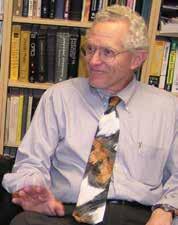
We are grateful to NSF for 7 grants at Arizona and additional help for the ACS-PRF and Research Corporation. We started with microwave hyperfine structure measurements, then moved to hydrogen-bonded complexes and transition metal complexes. Recent work has focused on concerted proton tunneling in hydrogen-bonded complexes. Some History is in Wikipedia – Stephen Kukolich.
Our microwave lab is still collecting and analyzing spectra and we hope to continue for another year.
I retired in 2008. We spend 6 1/2 months a year living in Alaska. I always loved wilderness, and my wife Anne and I live in the Boreal Forest. I do wildlife photography and I have given presentations to several different groups about Alaska. I did mountain rescue with SARA in Tucson, and I have continued to be a part of a CERT (Citizens Emergency Response Team) in Alaska. We ski, ride fat tire bikes, ride snowmachines, hike and fish.
I have done several projects with the Denali National Park as a volunteer.
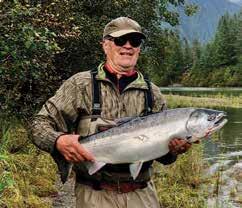
Phil taught both upper and lower-level Chemistry classes. He loved teaching the Introductory Chemistry course. At least 15,000 students over the course of 25 years benefited from his active teaching methods, partner activities, and innovative demonstrations. Dr. Keller also served as the head of General Chemistry was an honored Faculty Fellow and was Faculty Adviser to the Native American Student Association and Faculty Sponsor to the American Indian Science and Engineering Club.
Born on March 10, 1939, in San Francisco, California, to Irving Keller and May Edna Makinson Keller, Phil was a graduate of Lincoln High School and the University of California Berkeley, Class of 1961. He was a proud member of Alpha Chi Sigma, a Cal chemistry fraternity. Phil continued his scientific studies at Indiana University, earning a PhD in Inorganic Chemistry in 1966. At the University of Arizona, he quickly rose through the tenure rank to Full Professor based on his many publications.
As a longtime Tucsonan, he followed his passion for plants and animals and contributed to the Tucson community as a Docent at Tucson Botanical Gardens and Reid Park Zoo, and as a Greeter at the Arizona-Sonora Desert Museum. He was also deeply interested in art, history, classical music, and theater.
Phil was a delightful, clever, witty man with a huge smile and a dry sense of humor. He loved domestic cats and gave them names like Chemical and other bizarre names. He sketched quick humorous cartoons that made everyone laugh and wrote funny limericks to describe silly situations. He provided amusing sketches for the Arizona Master’s Swimming Newsletter, a team he swam on for 25 years.
Dr. Keller is survived by his loving partner, Claire Sneed, with whom he had many adventures.

Thank you for helping us support scholarships for our brilliant students, conduct outreach in the community, and for all your support for the Department of Chemistry & Biochemistry. When you choose to help, CBC flourishes.
We ask for your continued support to ensure that we have the resources to help create bright futures for our students and the world that they influence.
We are immensely grateful to all our alumni and friends who have made contributions by following one of the options below:



Michael Burrell Systems Administrator III
Hey everyone, my name is Michael! I’m about as close to a Tucson native as you can get without being born here and I have been working in IT on campus for a little over six years now. When I am not on campus or glued to a computer screen you can usually find me golfing with my dad, cycling on the loop, or motocamping in hopefully a cooler state.
Nancy Louks Business Manager, Sr.
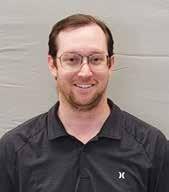

Hi, I’m Nancy Louks the new Business Manager, Sr. I come here from the University of California, Davis where I worked for over 20 years – most of which were in the finance area. My husband (Peter) and I moved here 2 ½ years ago to be close to our daughter and her family. We have two dogs (Lucy and Penny), two cats (Josie and Zoey), and two classic VW Bugs. I enjoy rock painting, diamond art, and spending time with the grandkids. On any given Tuesday you will find me munching on some tacos with a margarita close at hand!
Josie Martinez
Grant and Contract Admin
Hello, I’m Gladys Martinez, but please call me Josie. I joined the CBC team on May 15 and have been in the university accounting world since 2018. Numbers? They are my jam! Originally a city slicker from NYC, I swapped snow for hurricanes during a 15-year Florida adventure. But for the past seven years, I have called Tucson my home, trading alligators for coyotes and finding myself in the company of prickly personalities. At home, I live with my wonderful family, all part of the UA Wildcat clan, either studying or working here. Wildcats through and through!

When I’m not crunching numbers, you will often find me lost in the realms of horror and sci-fi. Looking forward to connecting with you!
My name is Virginia Olivas, and I am the new Accounting Assistant II. I was born in Tucson, grew up in a small Idaho town of 1,400+, and spent 18 years in Los Angeles. Three years ago, I was more than content to move back home with my Leonardo DiCaprio autograph (prized possession). The only thing I miss is the slew of Thai restaurants to pick from. I love to experience new things, have a happy disposition, highly value kindness, and LOVE to DIY. A useless talent is that I tend to remember irrelevant pieces of information.


Hello everyone, my name is Hibram! I was born and raised in Tucson, went off to the University of Notre Dame in Indiana for my BA, and then ventured off as an AmeriCorps teacher. I have worked in Education for the last four years teaching English, Spanish, and Technology courses and as an internship coordinator and Academic Advisor. I spend my days mostly studying, practicing martial arts, weightlifting, and learning about biohacking.
Dr. Muhammed Shafeek O.H. Researcher/Scientist III
I was born and raised in a beautiful village in Kerala, India. Shijith Sir, my all-time mentor, and guru, shed light on my path in the field of science during my undergraduate studies in chemistry at Sir Syed College (India). I then participated in an integrated doctoral program at the Indian Institute of Science Education and Research Thiruvananthapuram and worked with a fantastic and supporting guide, Dr. Vinesh Vijayan. During my doctoral studies, I worked in NMR spectroscopy in the field of relaxation NMR for high molecular species

Jennifer Thomas Seminar Coordinator

Hello, I’m Jennifer, an expert in client relationship management and communications. I am ecstatic to leave industry work behind for a genuinely meaningful career path after previously working exclusively from home in marketing and e-commerce. Born and raised in Fort Lauderdale, FL, I have lived in Tucson for seven years with my husband, daughter, and five cats. Outside of work, an avid collector of plants with over 200 varieties of cacti and succulents and an avid cinephile through and through. I am always eager to discuss anything and everything movie, TV, or plant related!
In 2022, I was selected to receive the Jharana Rani Samal Research Scholar Award from the NMRS. In my new role as a research scientist at the University of Arizona, I will work at Walti lab as a laboratory manager and NMR facility manager at the MSC facility. I consider this an excellent opportunity to expand my capabilities further and better serve the scientific community. When I am not working, I enjoy spending time with Moosi and Shahza, my beautiful family, and cooking delicious Malabari food.
Rich Markham photo
MS Chemistry, 1967 (Research Mentor: Jim Mulvaney)
I retired in 2014 in Columbus, Ohio. We’re now in Tucson (Marana) since 2015. Last year, Judy and I celebrated our 50th wedding anniversary. We love living in the desert!
Wayne Wesolowski photo
PhD Chemistry, 1971 (Research Mentor: Robert Feltham)
Retired after 41 years of college chemistry teaching (last 11 at the UA). I’m enjoying retirement. I read C&E News every week, walk mornings in the desert, and continue a life-long hobby of building miniatures. Latest is St. Ambrose Church model from Saint Louis honoring Italian immigrants. I would have loved to have taught in the new Chemistry Education Center.
Sheldon Clare
PhD Chemistry, 1972 (Research Mentor: Cornelius Steelink)
I am retired. I have now lived in Tucson since 2001. I sing in local choral groups.
Catherine (Katie) Smith
PhD Biochemistry, 1976 (Research Mentor: Donald Hanahan)
I retired about 10 years ago and have been active in my local community. I volunteer at the San Diego Zoo and am on the Board of the Young Lions Jazz Consortium, a private jazz school for high school students. I also volunteer for Father Joe’ Village, an organization assisting the homeless and needy in San Diego. I retired from the medical device industry around 10 years ago.
Walter Rudzinski photo
PhD Chemistry, 1977 (Research Mentor: Quintus Fernando)
I retired as professor emeritus after 38 years at Texas State University. I am married to Cathy (33 years) with two sons, Daniel and David, and an adopted daughter. We spend 6 1/2 months a year living in Alaska. I always loved the wilderness, and we live with it. I do wildlife photography, and I have given presentations to several different groups about Alaska. I did mountain rescue with SARA in Tucson, and I have continued to be a part of a CERT (Citizens Emergency Response Team) in Alaska. We ski, ride fat tire bikes, ride snowmachines, hike and fish. I have done several projects with the Denali National Park as a volunteer.
Karl Weiss
MS Chemistry, 1979
I will be retiring from the John Cowley High Resolution Electron Microscopy Facility at ASU after 39 years.



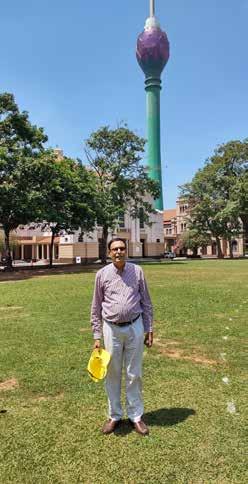
Germain Fernando photo
PhD Biochemistry, 1982 (Research Mentor: Michael A. Wells)
I am partially Retired and working as a consultant to a private company, Vaxxas, in Brisbane, Australia. I joined the Biochemistry Department for Medical School in August 1977. Our batch had 16 students, but I believe I was the only student in this batch to complete the PhD in the Biochemistry Department. Others like Bob England went to Med school. Rick Anderson joined the Pharmacy Department. Dave Rosen went to California. The names of the others I cannot remember, unfortunately.
My four years in Tucson were one of the happiest years of my life. I had the most wonderful boss, Dr. Michael Wells, as my thesis supervisor. I never had such a kind boss in all my 45 years of working life. Everyone in the Department including Christa, Helen, Debbie, and Rosanne was extremely friendly. In 1988 my family (Rosarine, Brian, and Randall) and I migrated to Australia. I joined University of Queensland, Brisbane, in 1989 and changed my field of research to Vaccinology and worked in Prof Ian Frazer’s lab for 17 years on the anti-Cervical Cancer Vaccine, and then on a needle free patch vaccine. In 2017, I partially retired and now I am working as a consultant for a private company in Brisbane, Vaxxas (www.Vaxxas.com) developing World’s First commercial needle free patch vaccine. This year in February, I went on a holiday to the country of my birth, Sri Lanka, and the photo attached is at my old school St Joseph’s College, Colombo 10.
Patricia Hill
PhD Chemistry, 1986 (Research Mentor: Victor Hruby)
I retired in 2014 after 28.5 years teaching chemistry at Millersville University of Pennsylvania. I’ll be moving to Tucson in fall of 2023.
PhD Biochemistry, 1987 (Research Mentor: Marc Tischler)
I have retired from work in the lab, but I am continuing desk work which includes getting all data published in reputable journals. I am an active editorial board member of the journal named, Toxics, and I serve as Associate Editor for a relatively new journal, Stresses.

My education at UA has been one of the best decisions I made. My research supervisor, Marc Tischler, set an extraordinary example of how to turn research data into a decent paper.
As testimony of my Biochemistry doctorate degree from UA, a top Research University, I am proud to report that I have made it to “The World’s Top 2% Scientists” in the Stanford’s ranking. The time node of the data for ranking is from 1960 to 2022.
Dharshi Bopegedera photo
MD/PhD Chemistry, 1989 (Research Mentor: Peter Bernath)
I am currently a chemistry professor. I was honored with the E. Ann Nalley Northwest Region Award for Volunteer Service to the American Chemical Society this year. Below is the announcement.
“The NORM 2023 recipient of this award is Prof. A. M. Ranjika Priyadarshi (Dharshi) Bopegedera. A physical chemistry professor at Evergreen State College in Olympia, WA, Professor Bopegedera has been an active member of the ACS since 1987 and
a member of the Puget Sound Section since 1991. She is highly respected for her volunteerism with ACS, which spans more than three decades. Notably, in 2022 she received the Outreach Volunteers of the Year Award for the Puget Sound Local ACS Section and the AWIS award for Excellence in STEM Education/Outreach. She is a Career Consultant of the ACS, a member of the ACS Division of Chemistry Education Public Relations Committee, and the Local Section Activities Committee (LSAC). She served as a moderator for the “DEIR: Promoting Student Success” panel for the 2021 ACS Puget Sound Section and as a reviewer for the Journal of Chemical Education from 2006 to date. She has served as a member of the Pauling Medal Award Selection Committee. She has been a member of the ACS Puget Sound Section Executive Committee for decades, serving as Chair in 2005, as Alternate Councilor from 20072017, and Councilor from 2018-present.
“Professor. Bopegedera has been the organizer of the ACS Puget Sound Section Career Events for undergraduate students since 2004. In addition, she served as chair of this section’s International Year of the Periodic Table Committee in 2019. In this role, she helped with fund-raising and invited Theodore Gray to serve as a speaker for the celebration of the 150th anniversary (2019) of the discovery of the Periodic Table of chemical elements in multiple locations in Western Washington.”
Jeff Arterburn photo
PhD Chemistry, 1990 (Research Mentor: Eugene Mash) I currently work in the Department of Chemistry and Biochemistry, New Mexico State University. I have been a faculty member since 1992, and my current rank is Regents Professor.
I was awarded the 2023 Intellectual Property Award presented by NMSU’s Arrowhead Center and the Office of Research, Creativity and Strategic Initiatives. https:// newsroom.nmsu.edu/news/nmsu-regents-professor--biomedical-researcher-named2023-ip-award-recipient/s/9890a6ca-0ba3-4f28-a9a8-f5a2eed936fb
I was definitely inspired by several UA Faculty’s efforts in advancing intellectual property aspects of their research during my graduate studies. It was nice to have this recognition for some of the work we’ve done at New Mexico State University, which is a relatively small, land-grant institution where I’ve spent my academic career. I hope this will encourage other students and colleagues who are considering opportunities for patenting in their research.
Joel Pankow photo
PhD Chemistry, 1991 (Research Mentor: Neal R. Armstrong)
I am self-employed, having started my own full-service tutoring company in semi-retirement.
After many years as an analytical chemist and materials scientist in both industry and government, I started my own company providing full-service chemistry tutoring for high school and college students. I have found a passion for being an educator and enjoy helping students see that chemistry doesn’t have to be hard, is relevant, and can even be fun. www.elementaltutoring.com
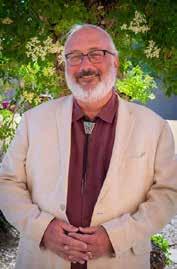
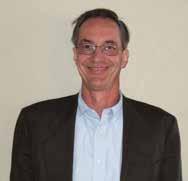



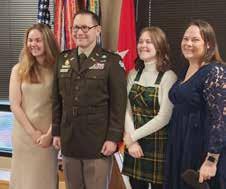

Jason Salber photo
BS Biochemistry, 1993; MD/PhD, 1997
I am currently working as a radiologist in Boise, Idaho. My daughter just began her freshman year at the University of Arizona. Her declared major is Biochemistry. She is playing piccolo in the Pride of Arizona.
Boyer photo
PhD Biochemistry 1994 (Research Mentor: Richard Hallick)
I retired from my R&D Executive job in Proctor & Gamble end of 2021. I have been traveling around US and the world with my husband and our 2 dogs since my retirement and visiting friends across the globe. I also have time to dance more (ballet, Chinese, and vintage). Really enjoying this phase of my life.
Michael Ruane
BS Chemistry, 1994 (Research Mentor: Robert Bates)
Presently, I am an Associate Professor at Texas Lutheran University. I stepped down as Department Chair of the Department of Chemistry to become the Director of the First Year Experience Program. I am also the Joint Admissions Medical Program Faculty Director at Texas Lutheran University.
Kimberly Meza (Keller) photo
BS Biochemistry, 1999
I’ve been employed by the City of Mesa since 2000. I started my career as a Serology, DNA, and Blood Spatter Analyst. I am now the Deputy Director of the Forensic Services Crime Laboratory and the Public Safety Communications (911/Dispatch) Center. Our Crime Laboratory provides services to the citizens of Mesa, Gilbert, Tempe, and Queen Creek. Our Communications Center provides services to the cities of Mesa and Queen Creek.
Timothy Sikorski photo
BS Chemistry, 2001
I presently work for the US Army V Corps as Director of Information Warfare. I was promoted to Colonel and served as the Deputy Chief of Staff for V Corps’ forward headquarters in Poznan, Poland, for three months. On my return to Fort Knox, I resumed duties as the Director for Information Warfare.
Carolyn (CJ) Pommier photo
PhD Chemistry, 2003 (Research Mentor: M. Bonner Denton)
I currently work as an Attorney at Hecker Pew PLLC by day and Executive Director of the TechLaw Program at the James E. Rogers College of Law on nights and weekends.
This year I graduated law school, passed the Arizona Bar Exam, and obtained my license to practice law. My practice focuses on helping tech-based startups get off the ground. I am also the part-time Executive Director of the TechLaw Program, which includes a full scholarship and is designed to encourage more people with technical backgrounds to go into law.
Tally Largent-Milnes photo
BS Biochemistry, 2005 (Research Mentor: Todd Vanderah)
Biochemistry Alumna Discusses Journey to Help Migraine Sufferers
Tally Largent-Milnes, class of 2005, was highlighted by UArizona Health Sciences in a story that discusses how questions that surfaced while growing up turned into a career in the study of migraines and their triggers. Read more at: healthsciences. arizona.edu/news/personal-journey-solve-migraine-puzzle
Michael Flory
PhD Chemistry, 2007 (Research Mentor: Lucy Ziurys)
I currently work as Director of Assessment and Analytics for the School of Education at Purdue Fort Wayne. I will be teaching p-chem as an adjunct this fall for chemistry and biochemistry majors at Purdue Fort Wayne. It’s my second year of teaching, but I forgot to share last year. I’m very excited!
Andrea Hartzell photo
BS Biochemistry and Molecular Biophysics; BS Molecular & Cellular Biology, 2011 (Research Mentor: Carol Barnes)
Since graduating from the CBC department at UA, Andrea completed a PhD in Neuroscience at UC San Diego and a postdoc at Scripps Research. Since 2020, she has been working in the scientific and medical communications field as Scientific Director for Health and Wellness Partners, LLC. Her favorite thing about her professional role is getting to see promising new treatments made from the research lab to the patients who need them. Andrea lives in Salt Lake City with her husband, Stefano Brigidi, who is faculty at the University of Utah’s Neurobiology Department, and their 4-year-old son, Luca.
Nabila Brabez photo
PhD Chemistry, 2012 (Research Mentor: Victor Hruby)
I currently own and operate a beauty business called Lancolia where we manufacture and sell through different marketplaces. Last year, we grew into a 4,000 sq ft lab. My background is in chemistry and our best-seller features peptides!! I discovered my specialty during my PhD years at UA while developing molecules that would selectively target skin and pancreatic cancer. Feel free to learn more about my business and visit lancolia.com. I miss Tucson and will forever cherish my time at UA. P.S. That is also where I met my husband 15 years ago. We now have 2 wonderful children.
PhD Chemistry, 2014 (Research Mentor: Neal R. Armstrong)
I am currently director of a biomaterials team at a startup company launching new composite products made with Fungi harvested from Yellowstone National Park in Montana.
Cody Corbin photo
PhD Chemistry, 2015 (Research Mentor: Zhiping Zheng)
I am currently working in Sandia National Laboratories. I was recently promoted to Principal Member of Technical Staff back in November of 2022. My twin kids are about to turn 6!

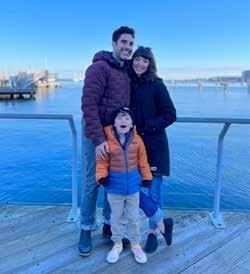


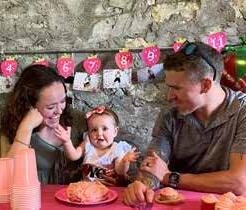

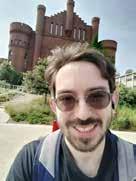
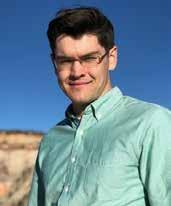
Andrew Gnann
BS Biochemistry, 2015 (Research Mentor: Megan McEvoy)
I help run a core facility at the University of Massachusetts Boston, offering a range of biophysical instrumentation capabilities. I recently received my PhD in Chemistry in the research group of Daniel Dowling at the University of Massachusetts Boston. A bit over a year ago, my son David was born!
Alyssa Brown
BS Biochemistry, 2017 (Research Mentor: Anna Dornhaus)
I am a branch supply planning specialist at Shamrock Foods. I am also getting married!
Kirsten Caldwell (Tucker) photo
BS Chemistry, 2017 (Research Mentor: Marty Pagel)
Kirsten was in Dr. Marty Pagel’s lab. She currently lives in Onalaska, Wisconsin. She is working as a youth librarian and loves to incorporate STEM into her programming.
Rishab Srivastava photo
BS Biochemistry, 2017 (Research Mentor: Pascale Charest)
After I finished my Biochemistry Major with Molecular & Cellular Biology with minors in Math and Spanish in 2017, I studied at the Mel & Enid Zuckerman College of Public Health and got my MPH in Biostatistics in 2019. Afterwards, I got to experience lots of great food and fun activities with my classmates at Midwestern University Arizona College of Osteopathic Medicine in Glendale, AZ. I just graduated from medical school there this past Summer. Now, I am overjoyed to return as a Wildcat to Tucson as an Internal Medicine Resident Physician at Banner UMC UA Tucson since this past June and give back to the community in which I grew up! It’s great to be back home.
Connor White photo
BS Biochemistry, 2017 (Research Mentor: Jacob Schwartz)
I’ve started a Biochemistry PhD degree at the University of Wisconsin-Madison.
Benjamin Rounseville photo
BS Biochemistry, 2018 BMUS Performance (Research Mentor: Indraneel Ghosh)
Congratulations to Ben who was awarded the 2023 Zenas B. Noon Award for Excellence in Cardiology! Benjamin graduated with honors in spring of 2018. He completed his Biochemistry Honors Thesis in the lab of Dr. Indraneel Ghosh and completed an Honors Music Thesis in 2018. Ben was also involved in the CBC Peer Mentor Program in 2017.
Jason Sweet photo
BA Biochemistry, 2018
I’m very grateful for the opportunity to be a UA football player from 2014-2016 and receive the best education I could’ve asked for. Before attending UA, I served as a Special Operator in the military and deployed to Afghanistan. My job involved skydiving, mountain climbing, SCUBA diving, shooting, and conducting advanced medicine. I enrolled in the UA shortly after returning from a deployment to Afghanistan.
Since graduating from the UA Department of Chemistry and Biochemistry in 2018, my life has taken an incredible turn. Studying biochemistry led me into the field of Human Performance Sciences. After winning a grant from the NCAA/Department of Defense in 2017, I used the money to start my own company, SOCOM Athlete LLC. We are
heading into year 6 of being in business, and recently earned our 6th government contract from the United States military. We’re accomplishing things no other company has accomplished before by solving critical problems for the military’s Special Operations recruiting and performance efforts, and this is just the beginning for us.
Where I’ve been blessed, the most by starting a beautiful family in Florida. My wife Jessica (also a UA alumni) and I just gave birth to our second son, and I couldn’t be more grateful for the exciting and joyful life we’re experiencing. I thank the UA for helping set me up for success in life and am forever grateful to people like Olivia Mendoza for believing in me during some of my toughest times. Bear Down!
Leah Bruce photo
BS Biochemistry, 2019 (Research Mentor: Jessica Tierney)
Leah started Medical School at Trinity of Medicine this fall. Leah and her husband welcomed Emmy, their first child, this past April!
Kristopher Eggert photo
BS Biochemistry, 2020 (Research Mentor: Jennifer Teske)
Kris is currently a medical platoon leader for the US Army at Fort Campbell Kentucky, home of the 101st Airborne Division. Kris recently did a stadium flyover for the Chicago Bears at Soldier field in a Blackhawk helicopter. The photo of Kris is when he did a rotation to assure NATO in Smârdan, Romania.
Madeline Morrow photo
BS Biochemistry, 2020 (John Jewett Research Group)
I’m about to hit my 3-year mark this fall with Avery Therapeutics, Inc., in Tucson! I work in R&D and Manufacturing for our product, MyCardia. It’s been a big shift from conducting research in Dr. Jewett’s lab to doing cell culture work. I’ve been so fortunate to learn so much from the company, and from going to conferences like ISSCR in Boston! At the turn of the year, I was promoted from Lab Technician to R&D Associate at Avery!
Easter Notice
BA Biochemistry, 2020
I am currently attending Pharmacy school at the University of Arizona.
Allyssa Walburn
BS Biochemistry, 2020 (Research Mentor: Henk Granzier)
I presently work as a Quality Control Analyst for Charles River Laboratories in Charleston, South Carolina. I’m currently enrolled for a master’s program in biotechnology at John Hopkins University, starting in spring 2024.




CBC alumnus John De Lorenzo earned his degree in Chemistry from the College of Science in 2016. Along with business partner, Kristopher Savage, a graduate from the College of Engineering class of 2014, as well as a few other friends from the University of Arizona, the group ventured into specialty mushroom production and urban farming. Together, they’ve introduced fresh specialty mushrooms through their business to countless health enthusiasts and foodies through Community Food Bank and Heirloom Farmers Markets, in addition to working with adventurous chefs and other local producers in and around Tucson. They’ve even gotten into the good graces of incredible distributors like Pivot Produce, Gallery of Food, Tucson Community Supported Agriculture (Tucson CSA), Time Market, Five Points Market & Restaurant, and other fine local grocers around town. During the pandemic of 2020, they took a leap from their modest suburban digs and moved into a shared industrial warehouse space near downtown Tucson along the I-10 freeway.
Desert Pearl Mushrooms is a specialty culinary and medicinal mushroom producer and vertical indoor farm dedicated to low-water sustainable agriculture in the Sonoran Desert. It was started in 2018 by UArizona alumni with degrees in Chemistry, Plant Sciences, Controlled Environmental Agriculture, and Engineering Management. The farm has evolved over the years from its humble beginnings as an aquaponics project in one of the other founders’ backyards, turning into one of Tucson’s niche urban farms. They rotate through over 30 kinds of specialty mushrooms annually, growing many varieties of Oyster mushrooms and Lion’s Mane, as well as other popular species like Shiitake, Maitake, Cordyceps, Reishi, and Turkey Tail among others. You
may have encountered their produce since the farm services many restaurants and farmers markets in the greater Tucson area, and their mushrooms and mushroom supplements can be found in boutique grocery stores and through suppliers all around Tucson.
These passionate urban farmers constructed a lab space, incubation areas, and grow rooms inside of a former printshop and ex-CrossFit gym, where eventually the remaining co-tenants moved into other offices and allowed Desert Pearl Mushrooms to take on additional square footage. With helpful guidance from mentors and advisors from the University of Arizona’s Center for Innovation (UACI), the farm expanded its operations and business activities. It was a long process over the next few years while adding more industrial refrigeration,
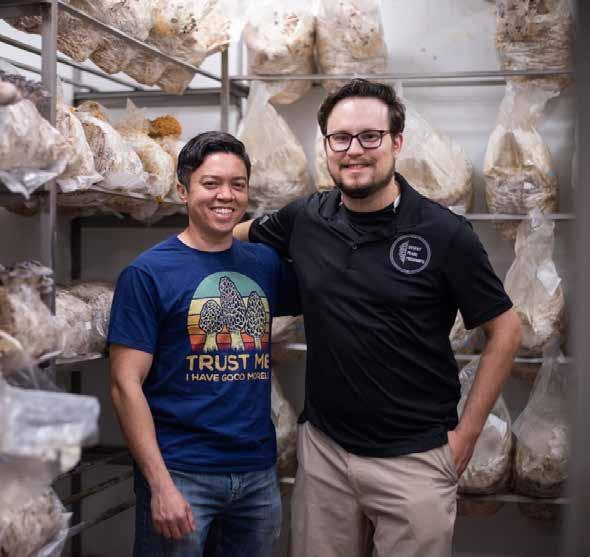
dehydration, and extraction equipment to their operations, but eventually they were able to supply larger commercial clientele and, ultimately, serve more customers and serve them better. In addition to commercial pursuits, they’ve collaborated with students and faculty from University of Arizona’s Controlled Environment Agriculture Center (CEAC), helping sponsor both graduate and undergraduate coursework in mycology and marketing, respectively. They also actively participate with other Tucson and Pima County farms to promote regenerative agricultural practices, including the reuse of their spent mushroom substrate as a nutrient-dense and mycologically active soil amendment in gardening and composting.
“UA’s Center for Innovation has provided us with invaluable resources, most importantly the combined experience, coaching, and mentorship from all of the subject matter experts they pair with you.” After reminiscing about some humorous-in-retrospect obstacles the farm encountered during the pandemic, John points out “actually, many of the transferrable skills from analytical chemistry, organic and inorganic, biochem, and physical chemistry—and working as a research assistant and in the student ambassador program—these opportunities, lessons, and the knowledge have all translated well into the startup experience. And I can’t tell you how much the faculty and staff have helped and shaped me over my years as an undergrad. The quality of education and mentorship from CBC has profoundly impacted my life—truly in a great way. Kudos to Martin Marquez, Megan Cunningham, and Olivia Mendoza for keeping me motivated those long… long hours, days, weeks… and opening up new opportunities for me and so many other students like me along the way.”
Going beyond fresh mushrooms, Desert Pearl Mushrooms expanded their product offerings beginning with dried mushrooms to save on losses from canceled orders suffered during the pandemic. The farm then ventured into value-added products like powdered mushrooms, mushroom supplements, and cultivation supplies. A bigger leap, however, occurred for them in 2022 when they introduced a line of liquid herbal supplements and mushroom tinctures, made in-house and with their very own locally-grown medicinal varieties. Now, in 2023, Desert Pearl Mushrooms currently produces over 300+ pounds of fresh mushrooms each week, and they are building out additional grow space to further increase production capacity by the end of the year, with other products and services still in development.
John and Kris both invite you to learn more about how they cultivate gourmet mushrooms and produce functional mushroom products at any of their farmers’ market locations, or by finding them on social media and dropping a comment. You can also check out their website at www.desertmushroom.com so visit them today!
I plan on working on the extraction team at Anresco Labs in San Francisco after graduation. I enjoyed my time at the UA because it really allowed me to learn a lot not just in terms of chemistry, but socially as well. I feel like this was my biggest take away because coming into the UA, I was very quiet and introverted and being there put me in the position where I needed to step out of my comfort zone. Now I feel more confident when speaking to others and expressing myself.
BS
W. A. Franke Honors College (Research Mentor: Ross Buchan) Vanessa Addison was raised in Scotland and Colorado and is an avid runner, foodie, and traveler. Last spring, she graduated Summa Cum Laude from the University of Arizona with a Bachelor of Science in Biochemistry. She is passionate about biomedical science and health education, with personal and professional goals to increase health literacy and provide aid to medically underserved communities.
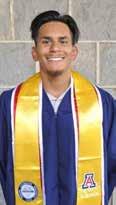

Vanessa’s pursuits are driven by her love for science and service. As a freshman, she interned with the Fight4HER campaign to advocate for affordable health services. She volunteers regularly at the Sister Jose Women’s Homeless Shelter and initiated a social media campaign to raise awareness about the homeless crisis in Tucson. Throughout the pandemic, Vanessa used her EMT certification to serve in a mobile clinic, administering vaccines to students and Tucson residents.
In 2021, Vanessa began researching in the lab of Dr. Ross Buchan. Her efforts to understand the molecular mechanisms underpinning Amyotrophic Lateral Sclerosis (ALS) have culminated in an Honors thesis, several award-winning posters, and contributions to a scientific publication. She is committed to enhancing STEM inclusivity and has served as a preceptor, CBC Ambassador, peer mentor, organic chemistry tutor, and SALT Center tutor to achieve this goal in the academic environment.
Vanessa is grateful for the unwavering support that she has received from her wonderful parents, research PI, graduate men-
tors, professors, CBC advisors, friends, and the UA community. Her proudest accomplishment at the UA is having been crowned the 2022 UArizona Homecoming Queen and representing CBC.
Following graduation, Vanessa will matriculate into medical school and pursue her lifelong aspiration of becoming a physician, where she aspires to further her research involvement and eventually work on clinical trials.
Briana Aguilar
BS Biochemistry; W. A. Franke Honors College (Research Mentor: Thomas Tomasiak)

My name is Briana Aguilar, I was in Dr. Tomasiak’s lab. I worked with YCF1, which is a variant of yeast cells. We concentrated on creating various cis-modified mutants to evaluate the change in conformational space via electron paramagnetic resonance (EPR). I am debating between doing my PhD in toxicology right away or getting experience in the industry before devoting another 5 years to the field. In my free time, I enjoy going to the gym, meal prepping, pending time with friends, and playing COD.
Carissa Bond
BS Chemistry
I am graduating in Fall 2023 with a BS in Chemistry. I started research in Dr. Craig Aspinwall’s lab, but after experiencing some medical issues, I am taking a break from research to focus on classes and work full-time at UA Research Laboratory & Safety Services. I plan to continue working while I take a gap year. In my free time, I enjoy powerlifting and playing video games.
Ellie Browne
BS Biochemistry; BA Philosophy; W. A. Franke Honors College (Research Mentor: John Jewett)


tunity for chemical biology students to complete three 8-week long rotations in different research labs. In Dr. Stacy Malaker’s lab, I analyzed biomarkers of osteoarthritis using mass spectrometry. Now, I am working in Dr. Scott Miller’s lab developing strategies to chemically alter biosynthesized peptides. In February, I will rotate in Dr. Stavroula Hatzios’s lab studying redox chemistry at the host-microbe interface. I will choose one of these labs to complete my dissertation research over the next five years. Outside of my program, I joined the Yale Prison Education Initiative, which offers college credit-bearing courses to incarcerated people in Connecticut. In the future, I hope to become a professor.
I am incredibly grateful for my education at UArizona that prepared me for my PhD program. I am especially thankful to my research mentors, Dr. John Jewett and Dr. Natasha Cornejo, as well as the support of Dr. Katrina Miranda and Cindy Neal through the NIH Maximizing Access to Research Careers program.
BA Biochemistry
I’m thrilled to share with you that I have been admitted into the MS program in Pharmaceutical Sciences at the University of Washington and started this Fall.
BS Biochemistry; BS Systems Engineering; W. A. Franke Honors College (Research Mentor: Roberto Guzman) Wesley will be taking a gap year as a medical scribe while applying to medical schools.
BA Biochemistry; W. A. Franke Honors College


After graduating with my BS in Biochemistry and my BA in Philosophy in May, I spent the summer in Tucson finishing up my undergraduate research and soaking up the sun. I took a road trip in August to my new home: New Haven, Connecticut!
The last few months, I’ve had the opportunity to pursue my passion for chemical biology as a PhD student at Yale University. I am taking classes across disciplines, including cell biology, physical organic chemistry, and biotechnology. Yale offers the oppor-

After a challenging four-year undergraduate journey, I am proud to have honed my skills and gained expertise in the areas of science, humanities, and the arts. My college education provided me with the opportunity to expand my knowledge in not only Biochemistry, but Spanish and music which has resulted in minors in both subjects. With my fluency in Spanish, I have taken a comprehensive approach to making a positive impact in my community serving as a Spanish medical interpreter at Clínica Amistad through the FACES Conversantes program in partnership with the UA medical school, working under the mentorship of Dr. Alejandra Zapien Hidalgo. As an interpreter, I have played a crucial role in reduc-
ing healthcare disparities in the Tucson community, particularly for the underserved, undocumented and uninsured population.
In addition to my medical interpreting work, I have also made a significant contribution to student success through my involvement in the UA Think Tank program as a Supplemental Instruction Leader for Organic Chemistry (CHEM 241B). With my acquired knowledge, expert guidance, and support, students have been able to overcome the challenges posed by historically difficult courses and achieve academic success.
My commitment to healthcare extends beyond my work as a medical interpreter. I have actively sought out further clinical experience through the Casa Alitas Program, which serves migrant families who have been forced to leave their homelands due to political reasons, escaping poverty and/or violence. I have also worked as a clinical medical scribe at Banner University Medicine, gaining experience in various medical specialties such as Pediatrics, Family Medicine, Lung Transplant, Hematology Oncology, Radiation Oncology, and Gastroenterology.
In addition to my academic and professional pursuits, I am also deeply invested in the arts as a talented violinist. I have developed my musical abilities through my minor in music studying under Professor Roth and have taken the opportunity to showcase my skills as an active participant in the musical community on campus. I have had the privilege of performing with esteemed organizations such as the Arizona Symphony Orchestra, Mariachi Arizona, and as a member of the Tucson Symphony Orchestra.
After graduation, I set my sights on participating in the UA-OEDI Summer Internship, which provided me with hands-on research experience, an enhanced understanding of public-health disparities in the U.S.-Mexico Border Region, and valuable preparation for graduate school. I graduated in May alongside the class of 2023 with the ultimate goal of applying to medical school and continuing to make a positive impact in the healthcare community within Tucson.
Kaitlyn
BS Biochemistry; BS Microbiology; W. A. Franke Honors College (Research Mentor: Walter Betancourt)
I was so excited to graduate in May with a BS in Biochemistry and Microbiology. My plan has been to go straight into industry. I am currently applying for full-time positions at biopharmaceutical companies in California. I completed a math minor and worked as an undergraduate teaching coordinator for Math 100 at the University of Arizona. I also completed research at the WEST center under Dr. Walter Betancourt where my projects (and my senior and honors thesis) were focused on the quantification and identification of viruses in wastewater. In my free time, I love read-
ing, painting, and bugging my sister for pictures of our husky, Rocky, who is back at home in Chandler.
BS Biochemistry; W. A. Franke Honors College (Research Mentor: Nancy Horton) Since graduating, I have been attending the University of Arizona for graduate school. The University of Arizona gave me so many opportunities during my undergraduate career, and I love that I can continue my education at such a wonderful university. As part of the Arizona Biological and Biomedical Sciences Doctoral Program (ABBS), I am excited to be pursuing my PhD in Drug Discovery and Development.
BS Biochemistry (Research Mentor: Marielle Hegetschweiler)
Since graduation my goal has been to get an entry level research job in Phoenix while I decide whether or not to attend further schooling.
BS Biochemistry (Research Mentor: Xhongguo Xiong)

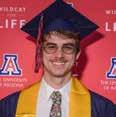

The University of Arizona has been a place of transformation for me. When I transferred here two years ago, I was excited to get back into research and feel like a scientist again. I spent two years conducting research in a virology lab under the tutelage of Dr. Xiong. We created a novel SARS-CoV-2 vaccine delivery system using plant viral vectors and plants as hosts. The goal was to create a flexible vaccine production system that could be adapted to new pathogens as they emerge. Over the summer I was accepted into the Undergraduate Biology Research Program (UBRP), where I began doing research in Dr. Thatcher’s lab. The lab is creating neuroprotective compounds to treat Alzheimer’s Disease, which work by upregulating ABCA1 protein expression without inducing lipogenesis. I am testing the efficacy of their compounds in liver and brain cells. I love being surrounded by so many brilliant minds.

I never imagined that two years of courses would revolutionize the way I see the world. Biochemistry is the study of life at a microscopic level. I see the world through that lens now and I am excited for the future, both personally and professionally. Research is my passion and I plan to continue as a research
technician after graduation. I foresee graduate school in my future, but for now I would like to enjoy the present. I love working in drug discovery and adore every moment spent in the lab. I am also looking forward to having the free time to travel and explore some of my hobbies, which include fire spinning and ceramics.
BS Chemistry; (Research Mentor: Dennis Lichtenberger)
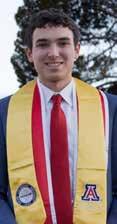
I had such a rewarding and fulfilling experience as an undergraduate student in the Department of Chemistry and Biochemistry. All of the professors, instructors, staff, and fellow students genuinely wanted me to succeed both inside the classroom and out. I greatly appreciate how much the department encourages its students to become involved with extracurricular activities such as the peer-mentorship and ambassadorship programs. I want to especially thank Dr. Dennis Lichtenberger and Addison Coen for allowing me to become involved with their research concerning hydrogen gas catalysis. I loved my time in the lab, and I am grateful for the opportunity to have been able to work on a research project with such exciting clean-energy implications. In July, I began my first year at the University of Kansas School of Medicine. I feel so lucky to have had such a great experience learning and applying chemistry during my undergraduate education, and I am thrilled to continue to do so in medical school.
George Fabian
BS Chemistry; BS Geosciences

My time at the UA was definitely an experience. Coming in freshman year there were so many new things I had not experienced before like living with roommates and being really independent. It was fun and exciting, but then the pandemic hit and things took a hard turn. It was tough having to go from a very social environment to an isolated one. My social anxiety increased and my desire to get out there went down a lot. This made my sophomore and junior year a little bit lonelier, but luckily, I found a nice friend group within the chemistry department, and they have slowly allowed me to get out of that previous mentality. It has not completely gone away, but my senior year I did manage to get more out there and take on more roles besides just being a student. I joined an outreach program at the Flandrau Science Center and Planetarium, educating elementary kids about earth science. I joined a research lab that does biogeochemistry and coupled ocean atmosphere modeling on the Southern Ocean. While yes, I wish some circumstances would have been different, I tend to agree with a saying in Spanish that goes “Será que los quisiera como los
hubiera no existen.” The saying basically says that the should haves and would haves do not exist, so therefore there is no point dwelling too much on them. It is best to remember the good memories and to look forward to future ones.
BS Biochemistry; W. A. Franke Honors College (Research Mentors: Thomas Tomasiak & Tarjani Thaker)
I’m currently seeking biotech jobs in San Diego. Thank you to Thomas Tomasiak, PhD and Tarjani Thaker, PhD for their mentorship as I completed my senior thesis!

BS Biochemistry, BS Molecular & Cellular Biology; W. A. Franke Honors College (Research Mentor: Laura Meredith)
Geffre, a Tempe native, was a UA senior pursuing a double-major in Biochemistry and Molecular Cellular Biology. As an undergraduate researcher at Meredith Lab, Parker was a part of the NSF Signals in the Soil project and supported by a NSF REU. She worked on VOC data analysis, novel sensor testing, and various support roles. After joining UBRP in Spring 2020, Parker concluded that undertaking research, especially in the unique field of environmental science, was an invaluable experience. Microbial and soil fingerprinting was an especially exciting topic for her to jump into. But more importantly, Parker loves how her research changed her perspective on the role of the world’s smallest life. She is an advocate for public outreach for research and was chosen last winter to give a talk on her work at the American Geophysical Union Conference (25,000 attendees) in Chicago.
She plans on eventually taking her BS degree into an adjacent science-policy field – like criminal forensics. Excitingly, however, she was mentored last summer at Dr. Colin Murrell’s lab at the University of East Anglia in the UK and continued her thesis work in isoprene-degrading bacteria. Outside of university, she enjoys adventuring, drawing, and studying British history. Parker is a National Hispanic Scholar, a member of WAESO, and is passionate about learning how science impacts our daily lives.
BS Biochemistry; W. A. Franke Honors College (Research Mentor: Adam Printz)
My name is Sidney Haigler and I graduated in the Spring of 2023 with a B.S. in Biochemistry and a minor in Mathematics. I have been applying to medical schools and hope to eventually become a pediatric surgeon. In my gap year, I will work as an EMT in my hometown in Maryland. I was in the Printz Research Lab and worked on a project regarding the effects of silanes on the

efficiency and stability of solar devices. Outside of school, I was very involved in my sorority, Pi Beta Phi Fraternity, where I served as Director Academics and the Chapter President. I also worked at the summer camp I went to as a kid for the past five years and even worked as the Day Camp Director this last summer which involved being in charge of 70 kids each week ages 4-12. I have been trying to read more but my real guilty pleasure is binge watching tv shows and movies. I traveled overseas for the first time last summer to Greece, Italy, and Turkey with my family to celebrate my graduation.
BA Chemistry; BS Molecular & Cellular Biology; BS Bioinformatics; W.A. Franke Honors (Research Mentor: Travis Wheeler)
Shifat graduated from UArizona May 2023 and was offered a job in San Francisco at a company called Metagenomi. She is now working with the genome editing team on mRNA therapeutics and lipid nanoparticles development. She is super excited to have started at her new job. Shifat states “It wouldn’t have been possible without your support throughout the last 4 years of my undergraduate career, Olivia! I am super grateful to you and the entire CBC advising team!!! Thank you for always looking out for us!” Bear Down!

BA Biochemistry; W. A. Franke Honors College (Research Mentor: Todd Schlenke) Rachel planned to work in a clinic to help prepare her to apply to medical schools.
BA Biochemistry

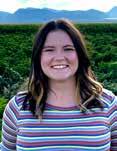
My college experience was a little different than most, as I actually started my college career at the University of Texas in Austin, before I transferred at the start of my junior year. The CBC department was amazing, and I really enjoyed the chance to fall back in love with my studies at the UofA. I was a Biochemistry major and after graduation, My plan has been to return to my hometown back in north Texas with my fiancé, Diego, who was a Mechanical Engineering student at the UA. My career plans involve a gap year to give myself time to get married and to save money while also adding to my resume for graduate school. I hope to further my education here at the UA through the Online Healthcare Management Master’s program. In my free time I enjoy hiking, which is one of the biggest reasons I love Tucson so much. I’ve also fallen back in love with reading and set a goal of finishing ten books before the end of the year. I enjoy
comedy a lot, and Diego surprised me with tickets to see Tom Segura (one of my all-time favorites) live in Las Vegas over Halloween weekend during my senior year. It was a blast!
MA Chemistry (Research Mentor: Mark Brusseau) After graduation, I will continue my studies in pursuit of a Ph.D. in Environmental Science focusing on the remediation of Perand Polyfluoroalkyl Substances in contaminated groundwater.
BA Chemistry (Research Mentor: Dante Lauretta)
Melissa worked with Dr. Dante Lauretta from the Lunar and Planetary Laboratory on a project titled “Hydrothermal Alteration on Earth and Asteroids” I began pursuing a PhD in Planetary Science here at UArizona in the LPL department this Fall semester! I’m excited!
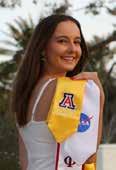

BS Biochemistry; W. A. Franke Honors College (Research Mentor: Richard Simpson) Terese Kulangara graduated in the spring of 2023 with a B.S. in Biochemistry with Honors and minors in Family Studies & Human Development and Molecular & Cellular Biology. In her time at the University of Arizona, she served as a CBC Ambassador/Peer Mentor; a Research Associate with the Simpson Lab; a Learning Instructor for the Introductory Biology Labs (MCB 181L); the President/Founder of Dosed with Happiness; the Vice President and Secretary of Giving a Little Arizona Magic; a Research Associate Program Mentor at Banner University Medical Center - Tucson; a PATH Mentor for the W.A. Franke Honors College; a member of the Leadership Team at the Sarver Heart Center; a preceptor for Physics, Organic Chemistry, Introductory Biology, and Adolescence; and a volunteer with Body Positive Arizona. In her free time, Terese enjoys lifting weights, baking, singing, and exploring different cafes and restaurants in Tucson. She is so grateful for all her professors, advisors, friends, and family members who have supported her unconditionally throughout her undergraduate career.
BS Biochemistry; BS Molecular and Cellular Biology; W. A. Franke Honors College (Research Mentor: John Ross Buchan) I began my journey at the W.A. Franke Honors College of the University of Arizona in the fall of 2019. Eager to get involved in life sciences research, I imme-

diately joined the lab of Dr. Daniela Zarnescu where I studied the neurodegenerative illness ALS using a fruit fly model disease. As it was election season at this time, I also helped found the UArizona Students for Bernie club which was instrumental in building campus awareness of the presidential election. I joined the Undergraduate Biology Research Program (UBRP) in my first summer over the pandemic, where I contributed to work that was published in the peer reviewed scientific literature. In the time since that first summer, I was elected as the Pen Pal Coordinator and then later the President of the UBRP Ambassadors, and I can confidently say that my time in UBRP was the most rewarding experience of my undergraduate career. In my sophomore year, I became a CBC Ambassador and Peer Mentor, where I enjoyed giving back to the department and helping new students make the most of their time on campus. Finally, I was awarded the Beckman Scholarship, which gave me the incredible opportunity to do research in the lab of Dr. Ross Buchan studying the role of mRNA in facilitating protein-protein interactions. I am so thankful for my wonderful professors, peers, and especially my advisors who made my undergraduate experience more exciting and productive than I could have possibly imagined. Bear Down!
Sami Bassam Muslmani
BS Biochemistry; Neuroscience & Cognitive Science; W. A. Franke Honors College (Research Mentor: Marvin Slepian) I started at the Medical Scientist Training Program (MD/PhD) at the University of Illinois at Chicago last June!
Christopher Nabong
BS Biochemistry (Research Mentor: John Streicher)


I took a gap year to and move back to Phoenix, Arizona, where I am from, and I am working in clinicals. Also, I am applying to medical schools in pursuit of my dream of being a Doctor of Medicine. In my free time, I love to play basketball and hit the links from time to time even though I am not very good. I also love to hike, workout, or pretty much do anything competitive. My four years at the University of Arizona were an experience of a lifetime. This school helped me find my passion and understand what it takes to achieve my goals. I appreciate all the relationships I made during my time, and I will continue to be the best version of myself. Always love for my Alma Mater!
my knowledge of chemistry more than I could have imagined. Through my courses and interactions with my peers and professors, my interest in this subject continued to grow. My experience in research gave me the opportunity to pursue an academic interest outside the scope of my courses, and it allowed me to make new discoveries in a field that I am passionate about.
Since my sophomore year, I was a researcher in the Kukolich group where I studied the structures of molecules and hydrogen-bonded complexes in the gas phase using microwave spectroscopy. My work in this lab led to a co-author in a publication on the hydrogen-bonded complex of formic acid –ammonia. I worked as an intern in the NASA Space Grant program, and I presented my work on deuterated isotopologues of 2-aminopyridine at the statewide Space Grant Symposium at the end of April. This work was also included in my Honors thesis, which contains my work on other molecules in addition to a description of a LabVIEW-based program I helped to develop to run laboratory instruments.
Outside of the classroom and the research lab, I was engaged in volunteer work in the Tucson community through places like Z Mansion, a resource center for people experiencing homelessness, Clínica Amistad, a free clinic for uninsured and underinsured patients, and other organizations. I also volunteered in the emergency room at Banner University Medical Center. Another passion of mine is mentoring others, and I served in this role in varying capacities across campus.
Since graduation, my aim has been to pursue a medical education to become a physician.
Emmie Ortizo
BS Biochemistry (Research Mentor: Edward Gelmann)
I worked under Dr. Edward Gelmann in the University’s Cancer Center studying the inhibition of NKX3.1 degradation as a potential therapy for prostate cancer. I was excited to graduate last spring! Since graduation, I have continued to work in Dr. Gelmann’s lab as well as apply to medical schools.
Aside from my academic pursuits, I also enjoy hiking, traveling, and trying new cuisines. My favorite cuisine would probably to be Thai food! Last winter break I visited UAE, and it was a very gratifying experience to immerse myself in the rich culture!
Briana Pomales
BS Chemistry (Research Mentor: Dennis Lichtenberger)
Jack Nichols
BS Chemistry; W. A. Franke Honors College (Research Mentor: Stephen Kukolich)
My time at the University of Arizona was transformational in the way that I see the world, and my education has expanded
I graduated in May 2023 with a Chemistry BS Degree. I was in the Dennis Lichtenberger research lab, and there were a couple of ongoing projects within the lab, however I am worked on characterizing metallopolymers’ effectiveness in producing hydrogen gas. I enjoy ceramics
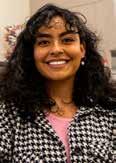
and have spent more time with my hobby since graduation. I started attending graduate school this Fall, focusing on inorganic chemistry.
Eric Primack
BS Biochemistry; W. A. Franke Honors College (Research Mentor: Michael Brown)
I began attending the University of Michigan in efforts to obtain a Ph.D. in Molecular and Integrative Physiology.
Anastasia Miller
BA Biochemistry, BFA Dance

Hi! My name is Anastasia Miller (she/ her), and I was a biochemistry (BA) and dance major (BFA). I graduated in May 2023. Since graduating college my plan has been to dance professionally. I am actively sending applications and audition footage to different companies and agencies. Additionally, I love to choreograph and teach. My hope is to receive my master’s degree in dance and biochemistry, either online or at the city I decide to move to. Eventually, I would love to go to physical therapy school or get into sports medicine. As a dancer, I have spent many hours in a sports orthopedics office and seeing the physical therapist, so I have learned to love it. Some of my hobbies include travel, as I recently visited Los Angeles and Columbus, Ohio, going to museums and enjoying nature. Graduation was bittersweet, but I am excited for this new chapter in my life.
Victoria Muñoz
BS Biochemistry; W. A. Franke Honors College (Research Mentor: Dennis Lichtenberger)
My name is Victoria Muñoz, and I was a Biochemistry BS major with minors in Spanish and Math. I was a CBC ambassador/peer mentor, MCBC club officer, and Intern at Casa Alita’s. My time at UArizona was foundational to my personal growth and influenced how I think for the better. It was challenging and insightful, and I am grateful for all the experiences I had, the relationships I made, and the people I met.

BA Biochemistry
I commissioned into the Air Force through ROTC, and began going to Naval Air Station Pensacola in August to begin flight school to become a Combat Systems Officer (like what Goose did in Top Gun).
Martin Gamez Rivera
BS Biochemistry; Neuroscience & Cognitive Science
I visited Honduras on a medical brigade and worked as a peer mentor for an innovation summer program through Dorrance Scholarship Programs. I was accepted into a neurobiology master’s program in Italy. I am really excited to have begun a new chapter in my life!

Guy Scangarello
BS Chemistry (Research Mentor: Craig Aspinwall) I hope to complete a PhD in analytical chemistry.
BS Biochemistry; BA French; W. A. Franke Honors College (Research Mentor: Scott Boitano)
Hillary Schiff is from Colorado Springs, Colorado. She graduated in both Biochemistry and French.
Hillary was a part of Dr. Scott Boitano’s lab since her freshman year where she has studied allergic asthma drug development targeting Protease Activated Receptor 2 (PAR2) in the airway epithelium. This research culminated in a first author paper and served as the basis for her honors thesis. Hillary was excited to present her work at the American Physiology Summit in the spring of 2023.

Additionally, during her time at the University of Arizona, Hillary engaged in service work at the Z Mansion, an outreach project serving the local population experiencing homelessness. She also spent time volunteering at Banner University Medical Center and was involved in various mentorship opportunities on campus. In her spare time, Hillary enjoys writing poetry, practicing her French, and spending time with friends.
Some interesting things about me are that my family is Cuban, and I am from Miami, Fl, living in the desert for college. I love being in the sun, hanging out with friends and family, cooking, reading, and working out. I was in Dr. Lichtenberger’s computational chemistry research lab. I graduated last May and would like to get a job related to climate change, sustainability, or renewables as an analyst or consultant. I look forward to my next chapter in life.
I am pursuing an MD at the University of Chicago Pritzker School of Medicine as part of the class of 2027.
BS Biochemistry; W. A. Franke Honors College (Research Mentor: John Streicher)
Through my time as a CBC student at the University of Arizona, I was constantly encouraged to develop as a student. Whether it was preceptoring for chemistry courses, working in a biochemistry laboratory, or simply asking a dumb question, my curiosity was consistently nurtured. I left the CBC program and became a medical student at the University of Arizona College of Medicine, and I know that I have much more to learn. But, I keep this spirit of discovery with me because as William Arthur Ward said, “Curiosity is the wick in the candle of learning.”

MA Chemistry (Research Mentor: Douglas Loy)
My name is Andrew Sennett, and I graduated in May with a Master of Arts in Chemistry. Over the summer I continued exploring the great outdoors, celebrated with friends, and met my newest nephew born last January. In August I began a position as a High School Chemistry teacher here in Tucson.

Thank you to the many educators that inspired me throughout the years. And thank you to my family, friends, advisors, and above all God for your support along the way.
PhD Biochemistry (Research Mentor: Thomas Tomasiak)
Rodolpho’s post-grad plans involve pursuing a career in the biotechnology industry working with business and innovation.
BA Biochemistry; BA Spanish (Research Mentor: Aneta Kielar)
I am excited to combine skills from my two majors — Biochemistry and Spanish Linguistics — in my role as a Patient Care Coordinator for Colorado Plastic Surgery Center in south Denver, Colorado. In this position, I provide clinical education, conduct patient pre-screening, develop patient relationships and communication, and serve as a certified healthcare inter-
preter. I am grateful for all of the undergraduate experiences that guided me to make the decision about the next step in my career, and I wish my peers all the best!
BS Biochemistry; W. A. Franke Honors College (Research Mentor: Felicia Goodrum)
After graduation, I went on a graduation trip to Italy with my family and ate lots of gelato! I also accepted a position working as a Research Technician at Scripps Research in San Diego and started last summer.
BS Chemistry, BS Biology
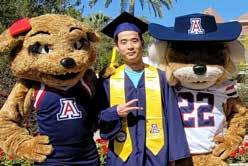
Hi everyone! My name is Ryan Wang. I was a double major in Chemistry and Biology and graduated in May 2023. I worked in the Pyun group to synthesize monomers and polymerize those monomers into polymers as an undergraduate researcher. I plan to obtain a doctorate degree in chemistry at the University of Washington. As a double major in chemistry and biology, I have a strong interest in doing research relating to biology with my chemistry knowledge and techniques. Thus, I aim to focus on research about chemical biology for my PhD program. Although the future is blurry, I always look forward to encountering and solving new challenges!


Vanessa Addison, class of ‘23, had the opportunity to attend the Cold Spring Harbor meeting on Ubiquitin, Autophagy, and Disease held in New York last week. Vanessa is part of Dr. Ross Buchan’s lab and conducts research that focuses on the molecular mechanisms of Amyotrophic Lateral Sclerosis.
Thanks to the Michael A. Wells Scholarship and Franke Honors Research Endowment, Vanessa was able to participate in the conference where she interacted with leading scientists, attended informative lectures, and presented a poster on her research.
Vanessa encourages her fellow CBC peers to apply for scholarships like these and actively seek out opportunities to engage in innovative science outreach.
CBC Graduate Student Ananya Chakraborti recently had the opportunity to attend a Biophysical Society meeting in the United Kingdom.
The conference’s title was, “Towards a Perfect Union: Multi-scale Models of Muscle and their Experimental Validation.” It was a Biophysical Society Thematic Meeting held at the University of Kent, Canterbury, UK from July 17 - 20. It was a meeting highlighting the recent developments in the research being done in the world of muscles, both cardiac and skeletal, in terms of computational as well as experimental fields.
My advisor Dr. Steve Schwartz was also one of the Keynote speakers at the meeting. I presented two posters on the ongoing projects on cardiac drug Mavacamten and using Neural Networks to detect pathogenicity of genetic heart diseases.
I visited some really beautiful places, such as the Canterbury Cathedral. As we know, Canterbury is famous for the Geoffrey Chaucer’s “Canterbury Tales.”
KEYS has been a life-changing experience, both as an intern and as a peer mentor. As an intern, I loved being able to participate in research before I started college. Even as a current undergraduate, I am still doing research in the lab that I was placed in during KEYS! I love being able to connect concepts I learned in class to the work I do in my lab and being introduced to chemistry concepts I wouldn’t otherwise see in class until much later.
This year, I have continued my involvement in the program as a near-peer mentor. It’s extremely fun to see the other side of the program. Now, I support high school students navigating research, help them develop science literacy skills, and assist them in learning how to communicate complicated scientific concepts to audiences without a scientific background. Seeing how much the interns have grown over the past 2 months is extremely rewarding, and I am so excited to see them present their research very soon!
I am so happy to be able to pay back the program that was integral to my first foray into research and help high school students start their own path in science. Thank you, KEYS!
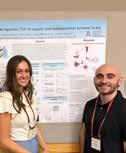

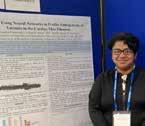
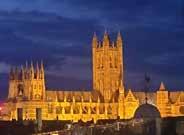
In October, undergraduate students Satya Dulam and Megan Hahn (both in Dr. J. Pyun’s lab) had the privilege of attending the Western Coatings Society Biennial Symposium at the Paris Hotel in Las Vegas. Along with ten other undergraduate students and twelve graduate students from universities across the West Coast, they presented their research during the conference poster session to coatings industry members from companies such as Dow Chemical, Behr Paint, Allenex, and many others. They also attended a Top-Golf student night hosted by WCS vice president Jerome Jacobs where they were able to meet and discuss research with other students attending the conference. It was overall a fantastic experience representing their research group, the University, and Arizona at an industrial and commercial level.
Last summer, I had the distinct honor of joining SHPEP at the David Geffen School of Medicine at UCLA. This transformative experience provided me with an in-depth look into healthcare inequities and challenges in underserved communities. I embarked on a rigorous health disparity research project, delving into the complexities surrounding the high rate of maternal mortality among Black mothers in the United States.
Working closely with current MD-PhD students on problem-based learning questions, attending anatomy and physiology lectures, and panel discussions where current physicians shed light on their approaches to healthcare disparities, have enriched my understanding of the medical world. Practical sessions such as suturing, wound care, and CPR training augmented my hands-on skills.
One of the most fulfilling aspects of the program was the diverse and profound networking opportunities and building lifelong friendships, all of which drew me a step closer to my dream of becoming a doctor. Being a SHPEP Scholar wasn’t just about academics and practical learning; it was about immersing myself in a community of like-minded individuals, driven by a shared vision of bringing change to healthcare, and forging bonds that I am confident will last a lifetime. The UCLA SHPEP program’s dedication to nurturing future leaders in medicine, dentistry, and nursing is truly commendable. I feel immensely privileged to be a part of such an impactful program.
In the summer, I flew to Spain and shadowed doctors in the Hospital Clinico Universitario Lozano Blesa. This was an incredible opportunity and widened my eyes to the wonders of medicine and the world.
When I started living in the city of Zaragoza, I realized that this city was beautiful, and I started to appreciate nature. I loved walking by shops, cafes, parks, and bookstores. I noticed the little sunflowers growing in a park as I walked by to explore my new home for the next 5 weeks.
This city used public transportation and we all were given a bus pass to get to the hospital. Every weekday, we used the bus and entered the hospital, and every week, we changed the specialty that we were shadowing.
The first week, I was in Internal Medicine. I saw their consultations and how the medical students talked to the patients and assessed their abdominal pain. Later that week, I saw how the doctors performed colonoscopies and endoscopies. I truly felt like I understood more about the digestive system and how the information taught in classes is used for treatments.





The next week I was in Neurosurgery. I got to see three brain surgeries and a spinal surgery. I enjoyed seeing how the surgeons cut through the layers of the head and to the brain as well as seeing the spine being modified to help relieve the patient of chronic pain.
The next week was ENT, which was ears, nose, and throat. I saw how assertive yet kind the doctor was in this department. She dealt with many kids with hearing issues, so she was gentle with the patients but assertive with the patient’s loved ones regarding what steps needed to be taken. The doctor was always busy and spoke very little English, so I got to practice my Spanish.
The next week, I was in the Neurophysiology department, and I got to see brain waves on the EEG (electroencephalogram) and perform EMG (electromyography) tests on me and my partner from Global MedCats. It was extremely interesting to see how physics is used in the EMG in measuring the velocity in the different muscle areas. The last week was Pediatrics and there I got to see two live births and a caesarian section birth. Then I also saw how the medical students assessed the newborns to check if there were any problems present.
In all these weeks, my love for medicine grew and I saw how interactive the doctors and medical students were in the hospital on a day-to-day basis. Aside from my shadowing experience, I found a new-found love of walking and exploring coffee shops and bookstores by myself.
There were always moments where I found myself one with the places I went: the beach in Valencia, the El Retiro Park in Madrid, the cobblestone streets of Tarragona, the coffee shops in Zaragoza, the mosaics in Barcelona, the waterfalls of Alquezar, and the nightlife in Spain as a whole.
Chloe Park
I was incredibly lucky to have been selected as one of the four BRAVO! students in the summer.
Never in my life had I imagined that setting foot in Europe during my college years would be possible, especially with my financial situation. However, BRAVO! made this dream come true.
The experience felt surreal throughout the entire three months as I worked in a different environment surrounded by the lovely yet hard-to-understand Glaswegian accents. I watched the Scottish Premier League in person, took a weekend trip down to London, and even to this moment, these memories feel like a dream.
Over the summer, I had the opportunity to learn various lab techniques including super-resolution microscopy, and how to think like a scientist. Since I flew all the way to Glasgow with my own project, hoping to contribute something new to my lab, I held a sense of greater responsibility and learned how to come up with my own troubleshooting ideas when experiments did not proceed as expected.
However, science was not the only part of this valuable experience. Beyond academics and science, BRAVO! allowed me to grow personally. For the past three years, I was constantly running at full speed towards my goals without giving myself time for introspection. BRAVO! gave me the chance to take a step back, reflect on myself, and now I feel fully recharged to return and work towards my goals once again.
Moreover, I met the most incredible group of people in the Sheiner lab. They are not just my coworkers and mentors but have become my best friends. They are the most brilliant, caring, hardworking, and funny people I have ever met. They knew how to

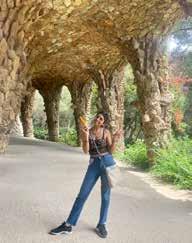

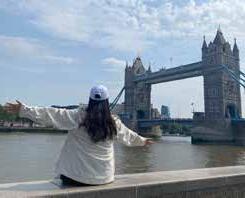
make the work environment both productive and enjoyable at the same time. I had the opportunity to hear honest opinions about my future plans from those who had gone through similar thought processes. I will never be able to forget the summer of 2023.
Elizabeth Rottier
My name is Ellie Rottier, and I am from Wisconsin. I am a sophomore majoring in microbiology on a pre-dental track.
This past summer I worked as a camp counselor at Camp Laurel in Mount Vernon, Maine. During my two months there, I taught ceramics and participated in many activities with the campers in my cabin. Some of my favorites were the color run and tubing on Echo Lake.
I was in Dr. Hidalgo’s chemistry class last year, and I am so excited to be back helping her out!
Olivia Seagraves
Hello, my name is Olivia, and I’m a junior Biochemistry major. This summer, I had the opportunity to study abroad in Alcalá de Henares, Spain to work on my Spanish minor. Alcalá is located about 20 miles outside of Madrid and is the birthplace of Miguel de Cervantes, the author of the legendary Don Quixote. It is a gorgeous town and full of things to do.
I took two courses at the Universidad de Alcalá, Intermediate Spanish and Oral Communications. The credits I earned there transferred directly back here to the U of A. I lived with a great host family (they even had two cats!) and I was able to immerse myself in Spanish culture and language for four weeks.
While in Spain, I traveled with friends to multiple cities including Córdoba, Sevilla, Granada, Toledo, and València. We even saw The Weeknd perform in Madrid! There was never a dull moment, and every day was an opportunity to grow in my Spanish language skills and confidence. I would encourage anyone who is interested in studying abroad to take the leap and do it!
Hi! I am a sophomore biochemistry major, Spanish minor and W. A. Franke Honors College student. I am currently a Chem 152 preceptor. As a preceptor, I am responsible for attending Dr. Amy Graham’s Chem 152 class and helping to answer student questions, take attendance, and support the professor however she needs.
I also host tutor hours once a week where students can ask me questions and receive answers tailored to their concerns. I like being a preceptor because it gives me the opportunity to help other students to be successful in a course I have already completed, and it helps me to share my enjoyment of chemistry!
In June 2023, I had the incredible opportunity to participate in the 28th annual American Peptide Society (APS) meeting in Scottsdale, Arizona. This event provided a valuable platform for networking with esteemed professors, colleagues, and industry professionals, as well as attending engaging lectures on peptide chemistry and biology.
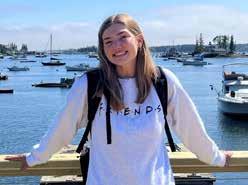


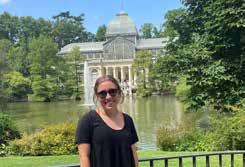
As one of the eight selected Dr. Elizabeth Schram Young Investigators, I had the opportunity to give a 10-minute presentation on some of the work I have been doing in the Polt group here at the University of Arizona. My presentation, titled “Minimally Competent Lewis Acids: Effective and Efficient Catalysts for β-Glycosylation of Peptide Hormones,” focused on the development of MCLAs for synthesizing glycoside starting materials, as well as the innovative computational approach I developed for optimizing and discovering new catalysts.
While I was the only representative from the University of Arizona among my fellow graduate students, the APS organized various activities to facilitate meaningful connections with peers and potential collaborators. I also took the time to unwind and enjoy the serene lazy river at the resort, as well as indulge in the exceptional dining experiences offered by Scottsdale. The APS meeting proved to be an enriching and professionally rewarding experience, enhancing my knowledge, expanding my professional network, and revitalizing my enthusiasm in the captivating surroundings of Scottsdale, Arizona.
This summer, I had the privilege of participating in the Undergraduate Biology Research Program (UBRP). The prospect of entering a research lab can be daunting, but UBRP provided me with the necessary resources and support to excel both inside and outside the lab.
Beyond simply fostering a community of like-minded peers, UBRP cultivates an atmosphere of curiosity and learning through its weekly seminars and workshops. Through this program, I was fortunate enough to connect with my current mentor, Dr. Jeanne Pemberton, as our group collaboratively explores the characteristics of a new functional material known as glyonic liquids. Noteworthy for its unique properties and biodegradability, this substance presents itself as an environmentally-friendly alternative to commonly used surfactants, holding immense promise for future applications in electrochemical devices.
Irrespective of one’s future aspirations, I encourage all University of Arizona students to embrace research during their academic journey. Not only is it rewarding to contribute to the scientific community, but it also offers incredible opportunities to establish meaningful connections and acquire a wealth of knowledge along the way.
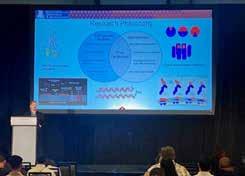



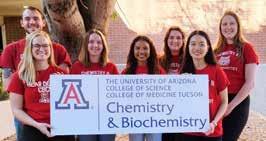

COCOA & COOKIES
CBC undergrads enjoy a January treat
CBC UNDERGRADUATE POSTER FAIR





CHEMISTRY & THE COMMONS GRAND OPENING


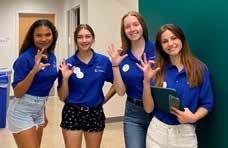





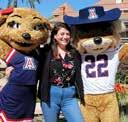
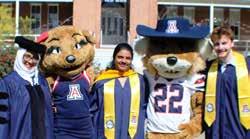
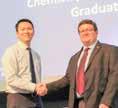
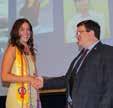
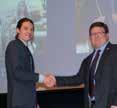

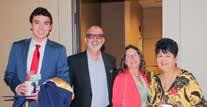




COLLEGE OF SCIENCE COMMENCEMENT
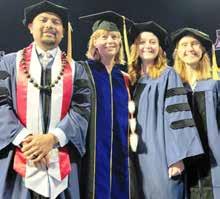
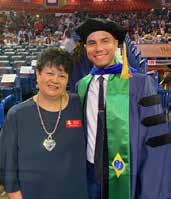







COLLEGE OF SCIENCE NEW STUDENT WELCOME EVENT


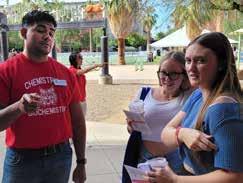
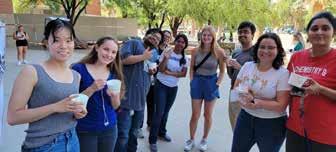

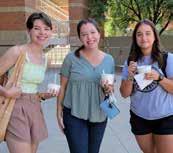

OKTOBERFEST FAMILY PICNIC
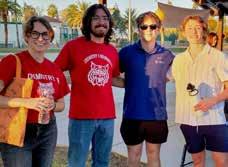
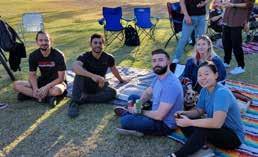
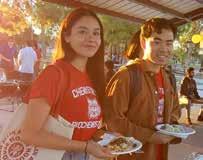




SPOOKTACULAR SCIENCE


OUTREACH AT BABOQUIVARI HIGH SCHOOL Program to Advance Women Scientists’ students perform demos

COMMUNITY FOOD BANK VOLUNTEERING
Business office:
